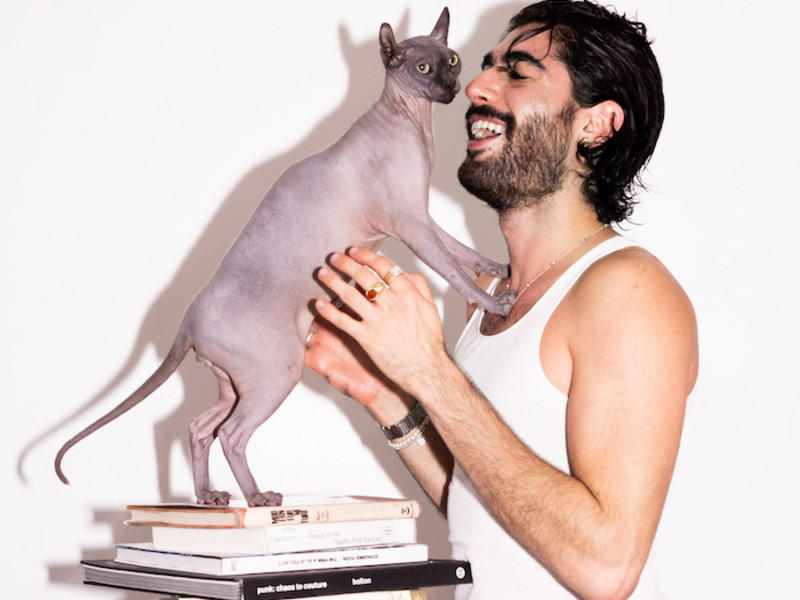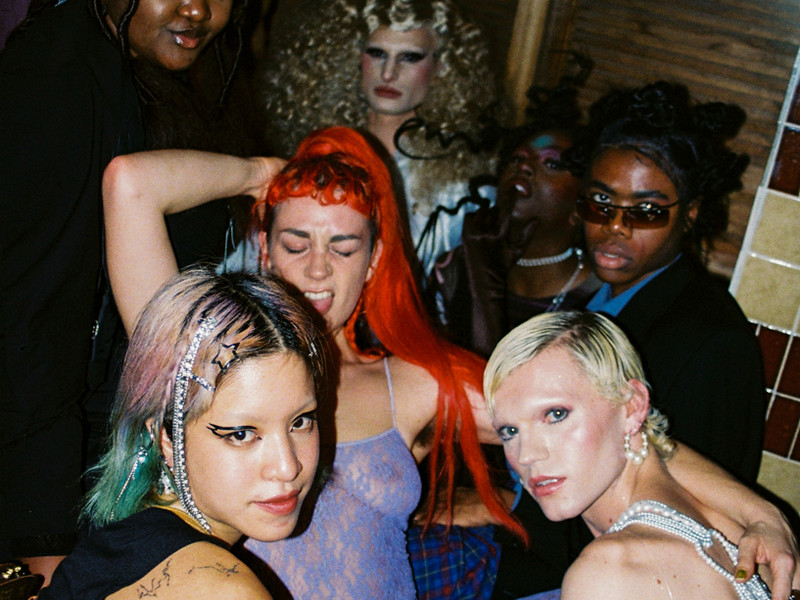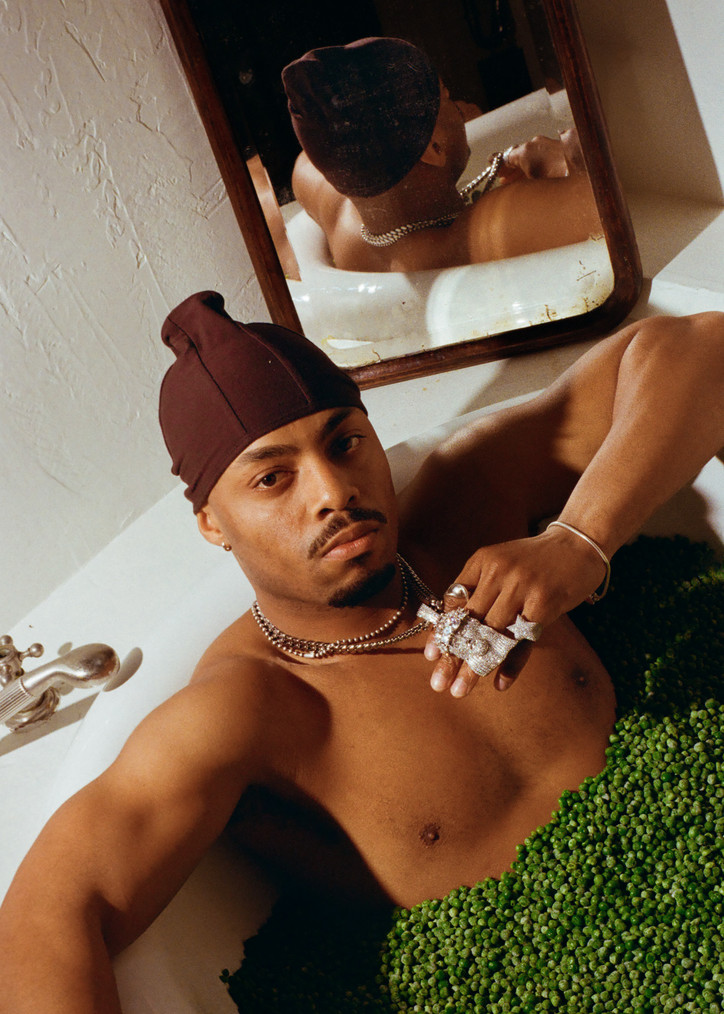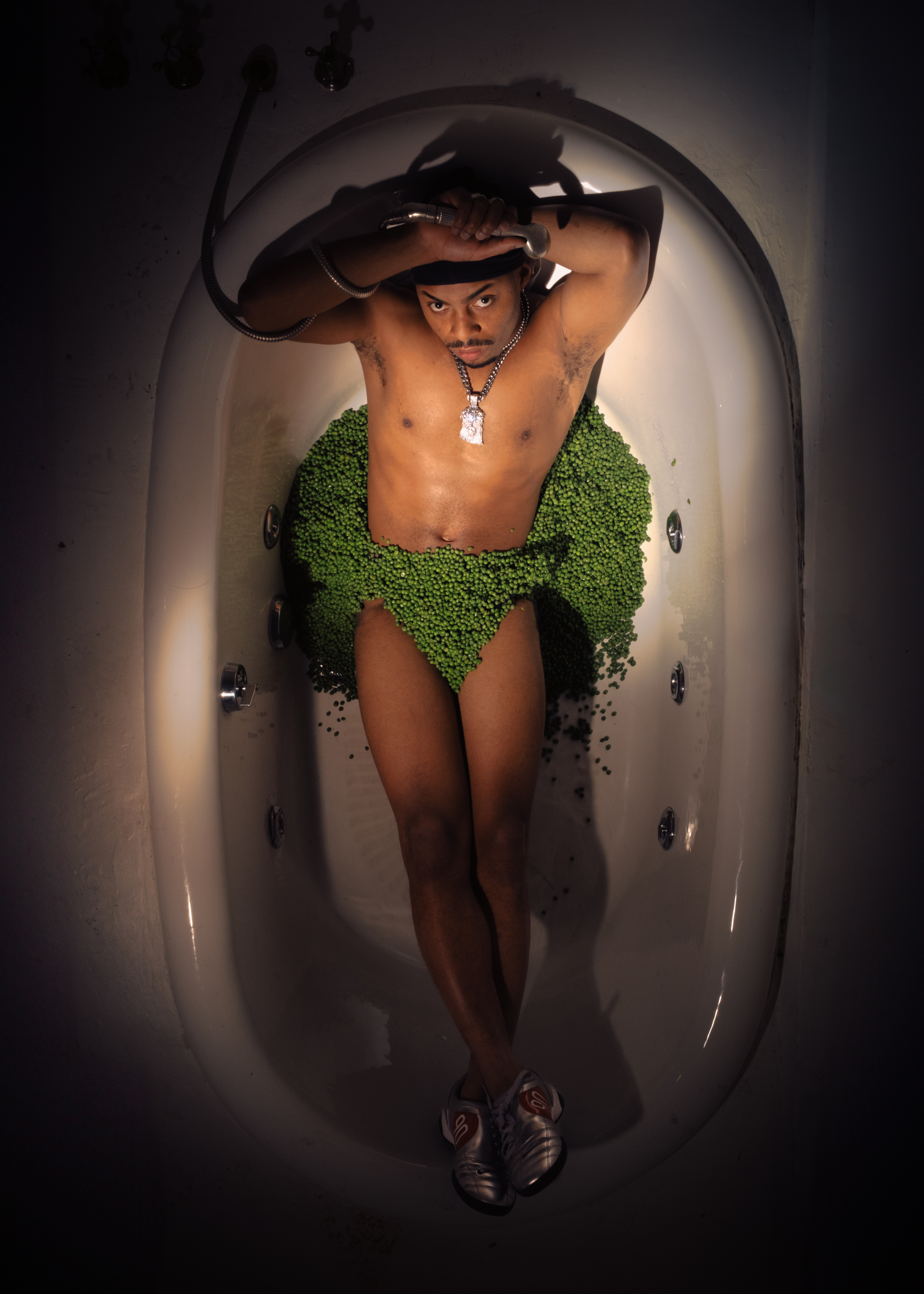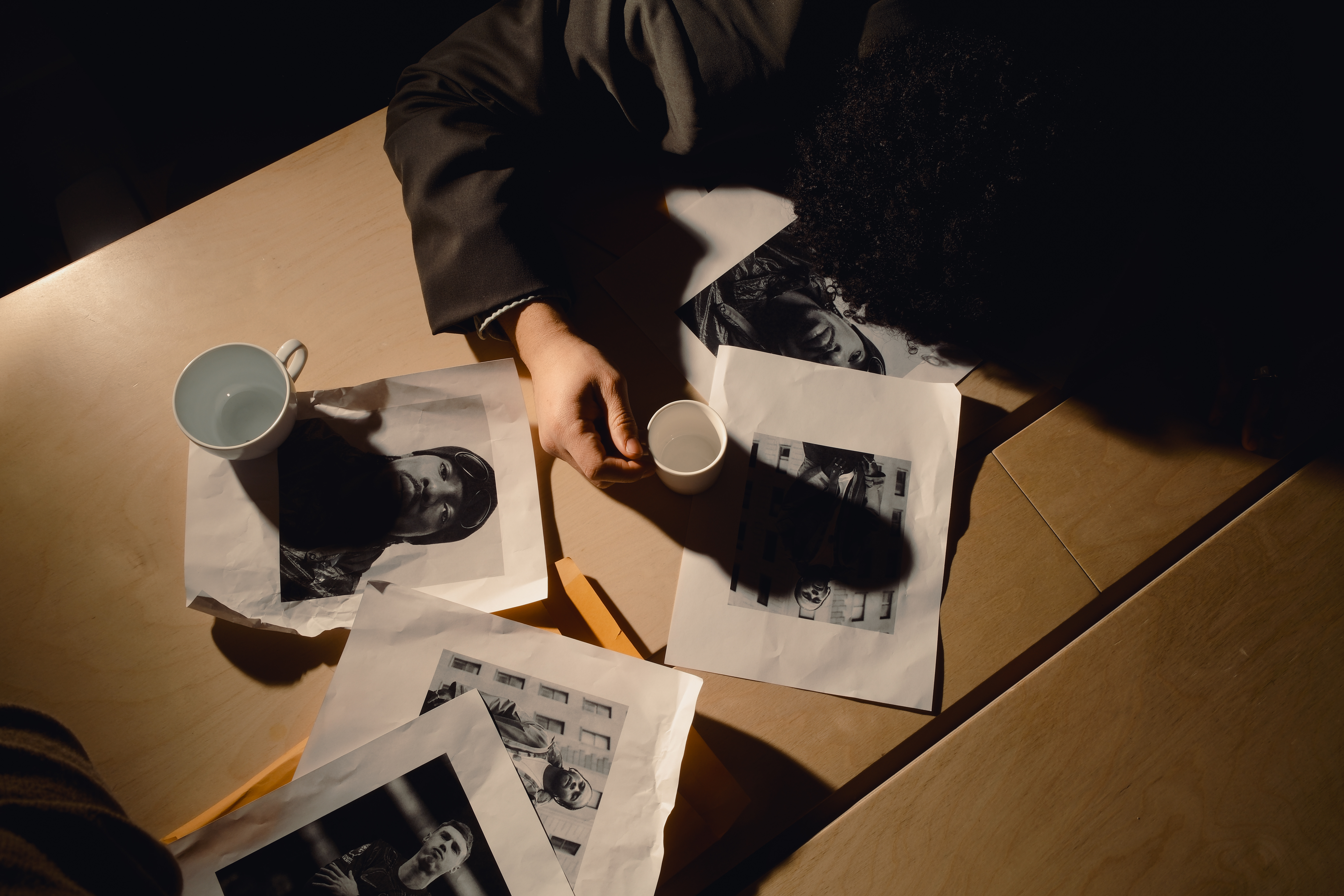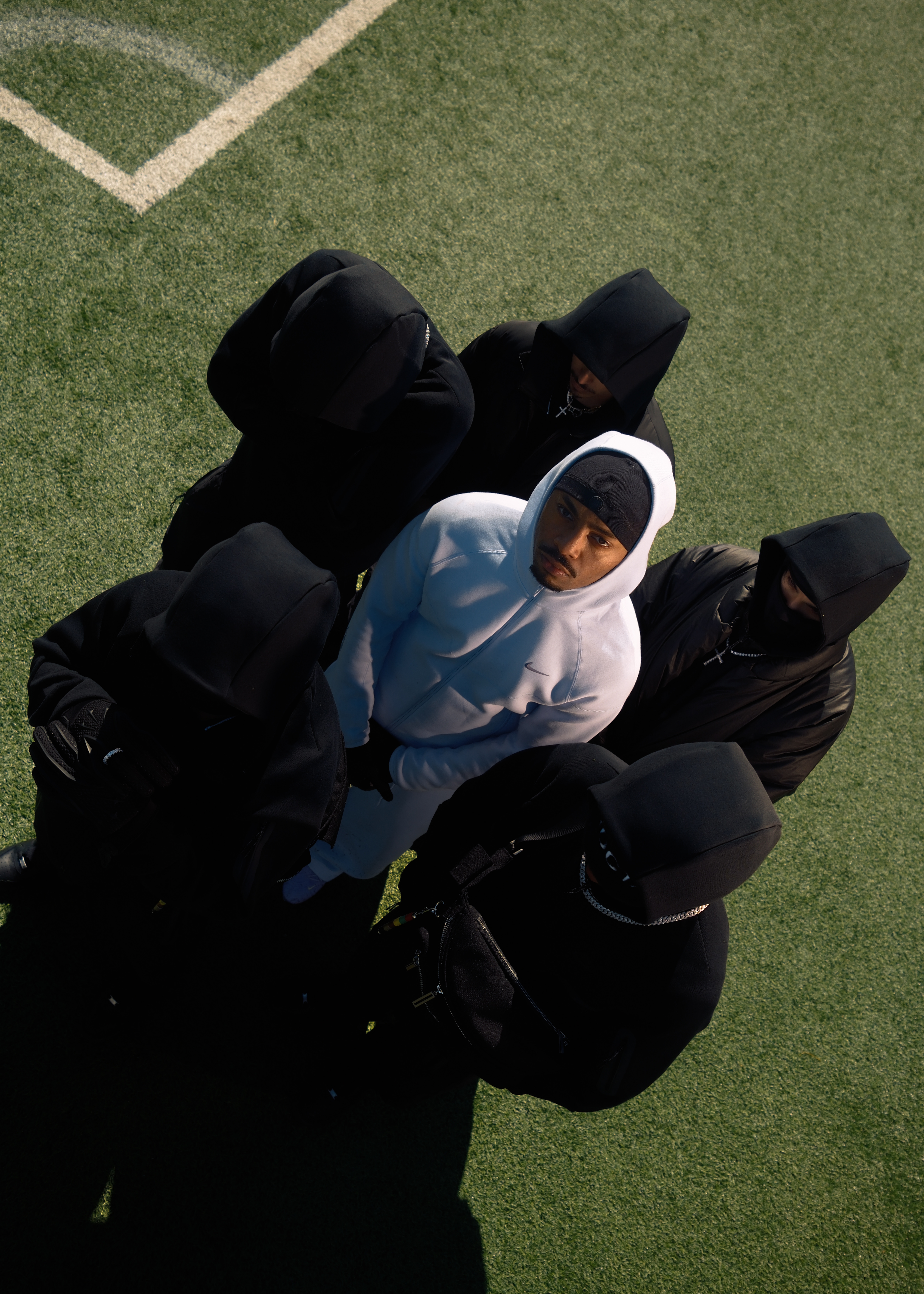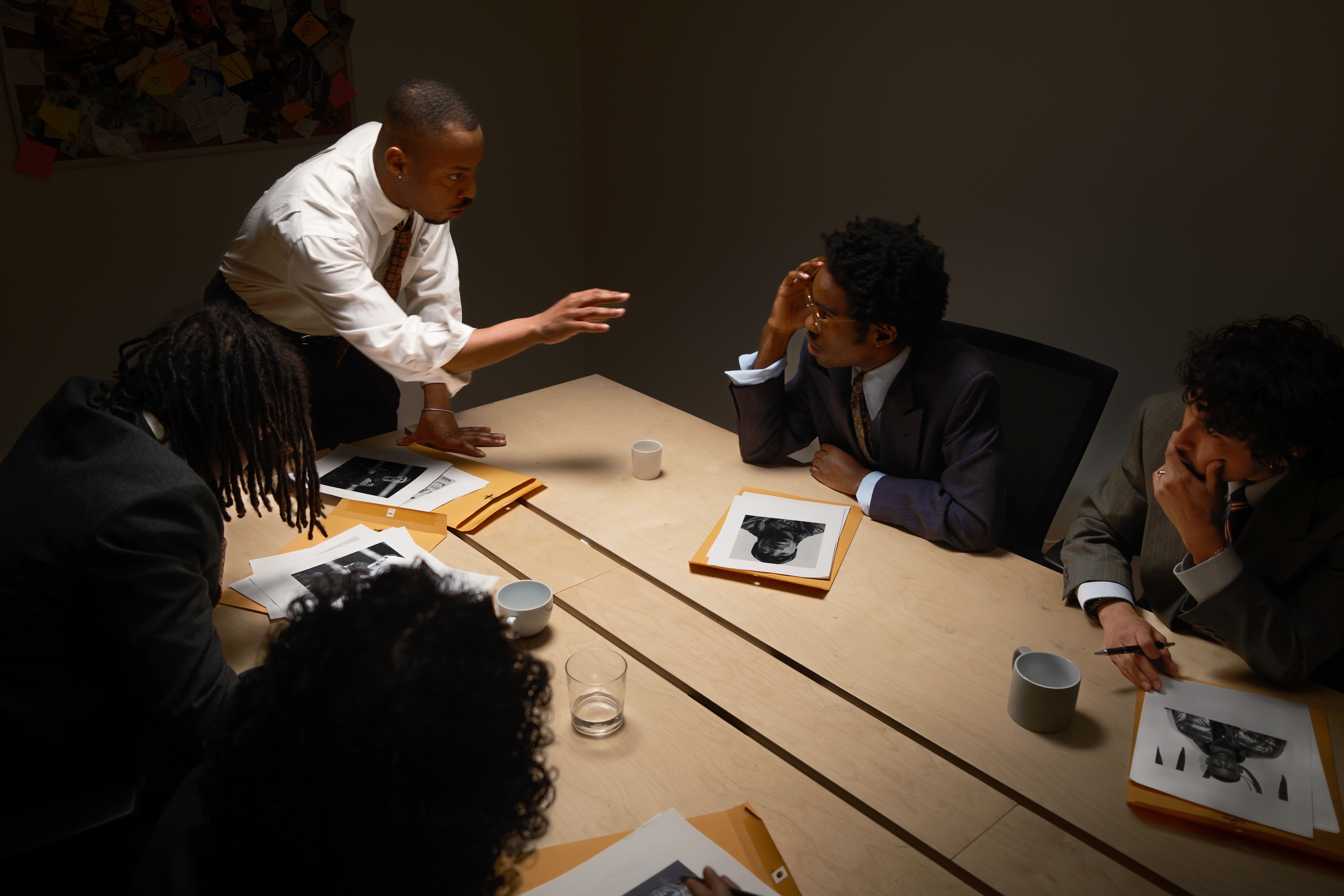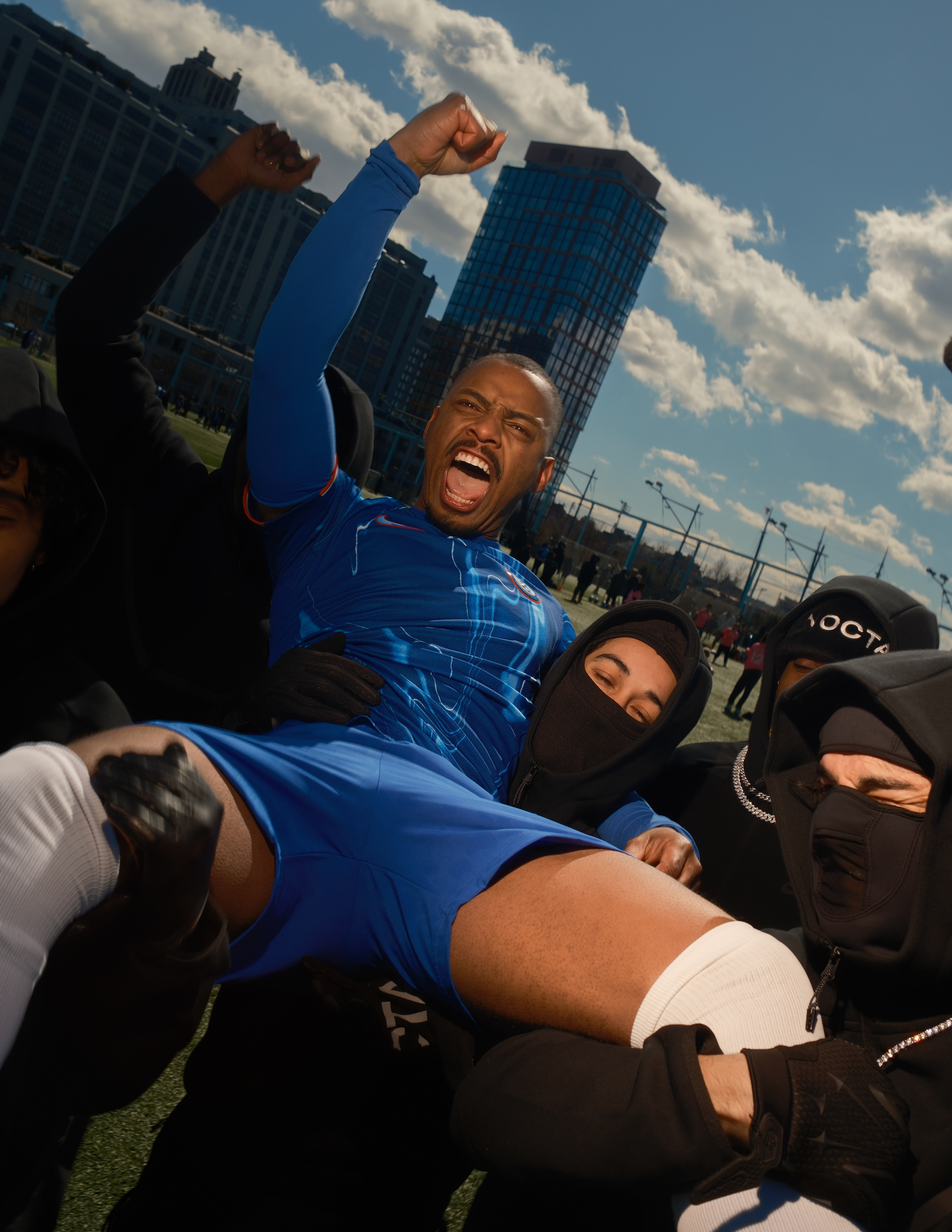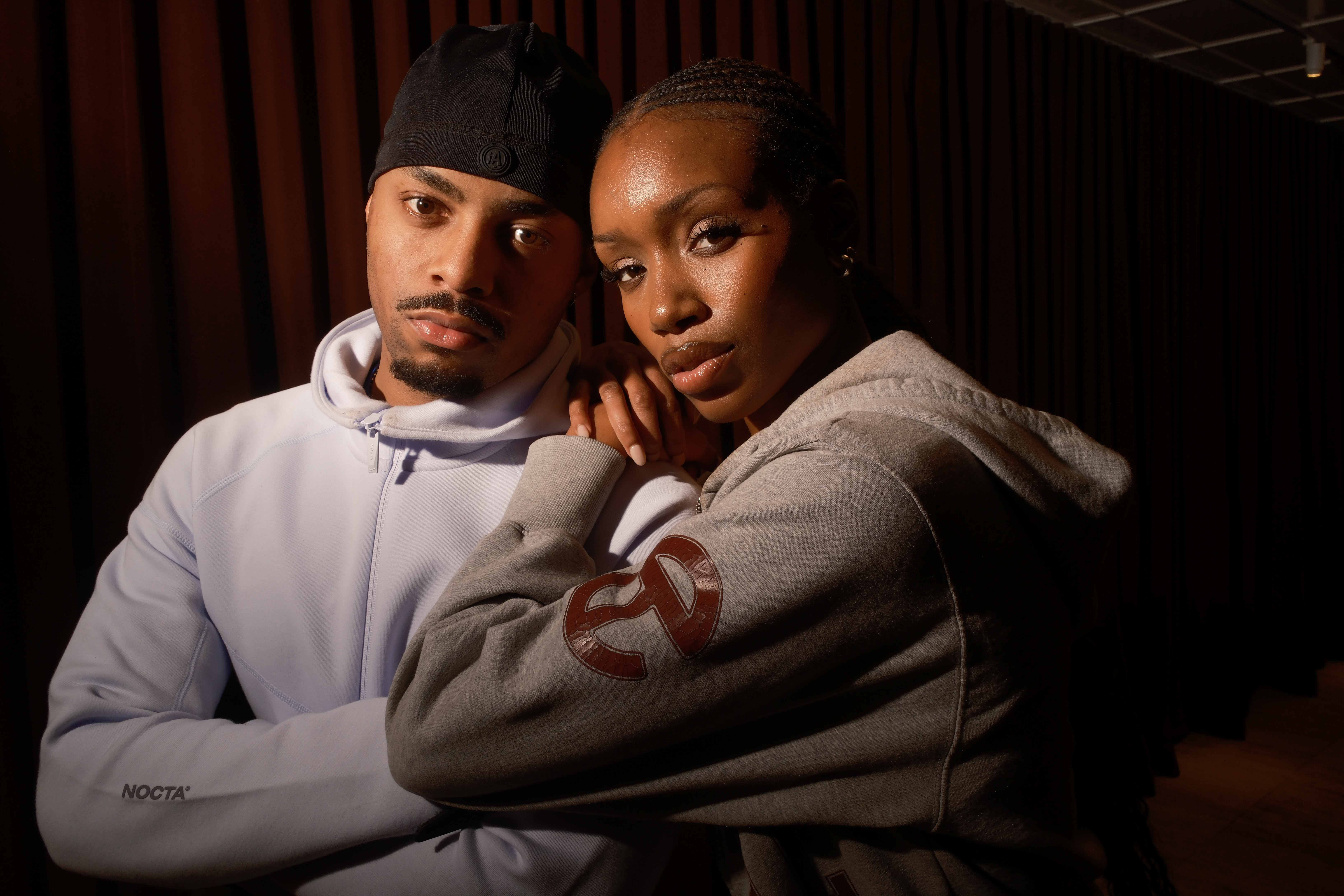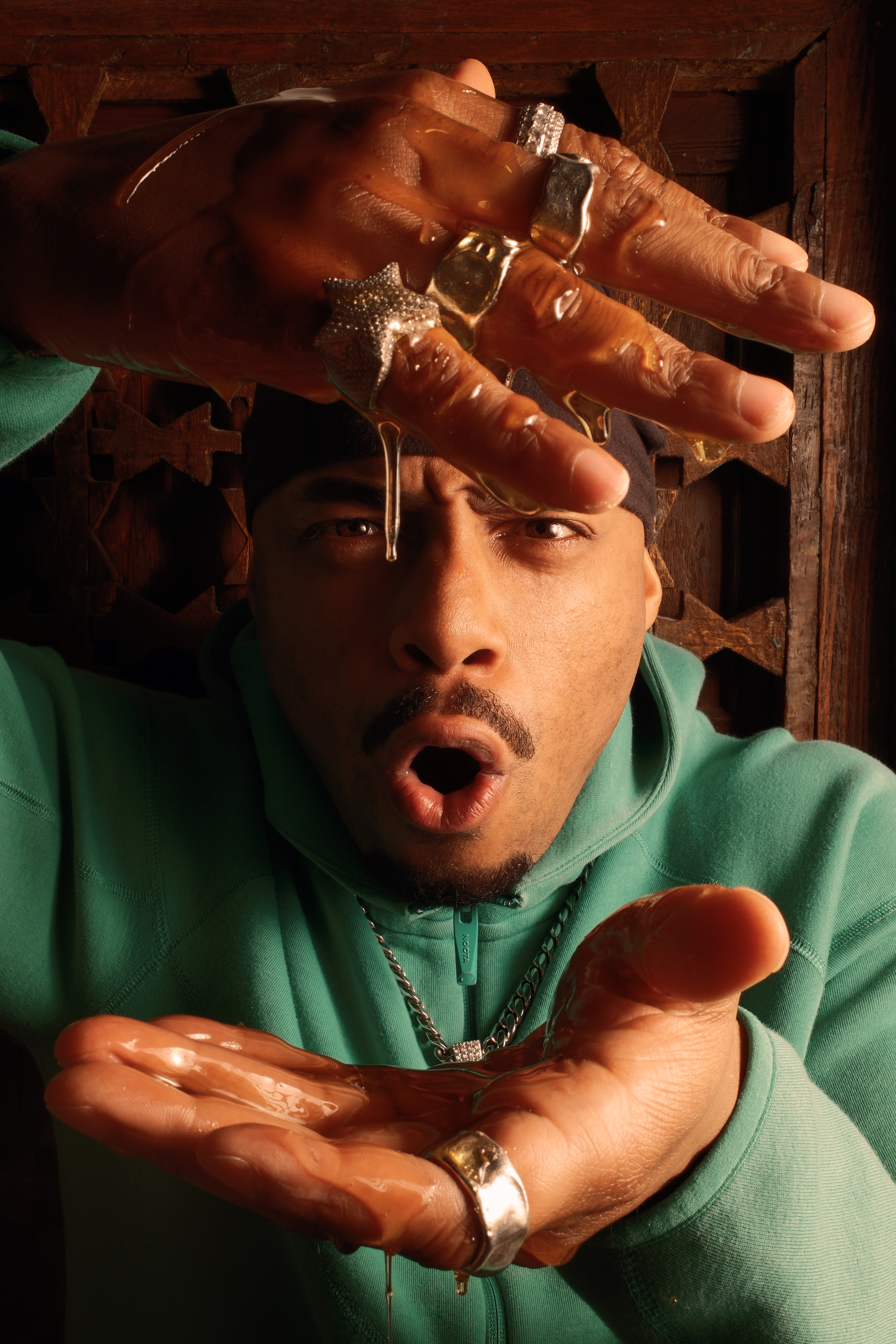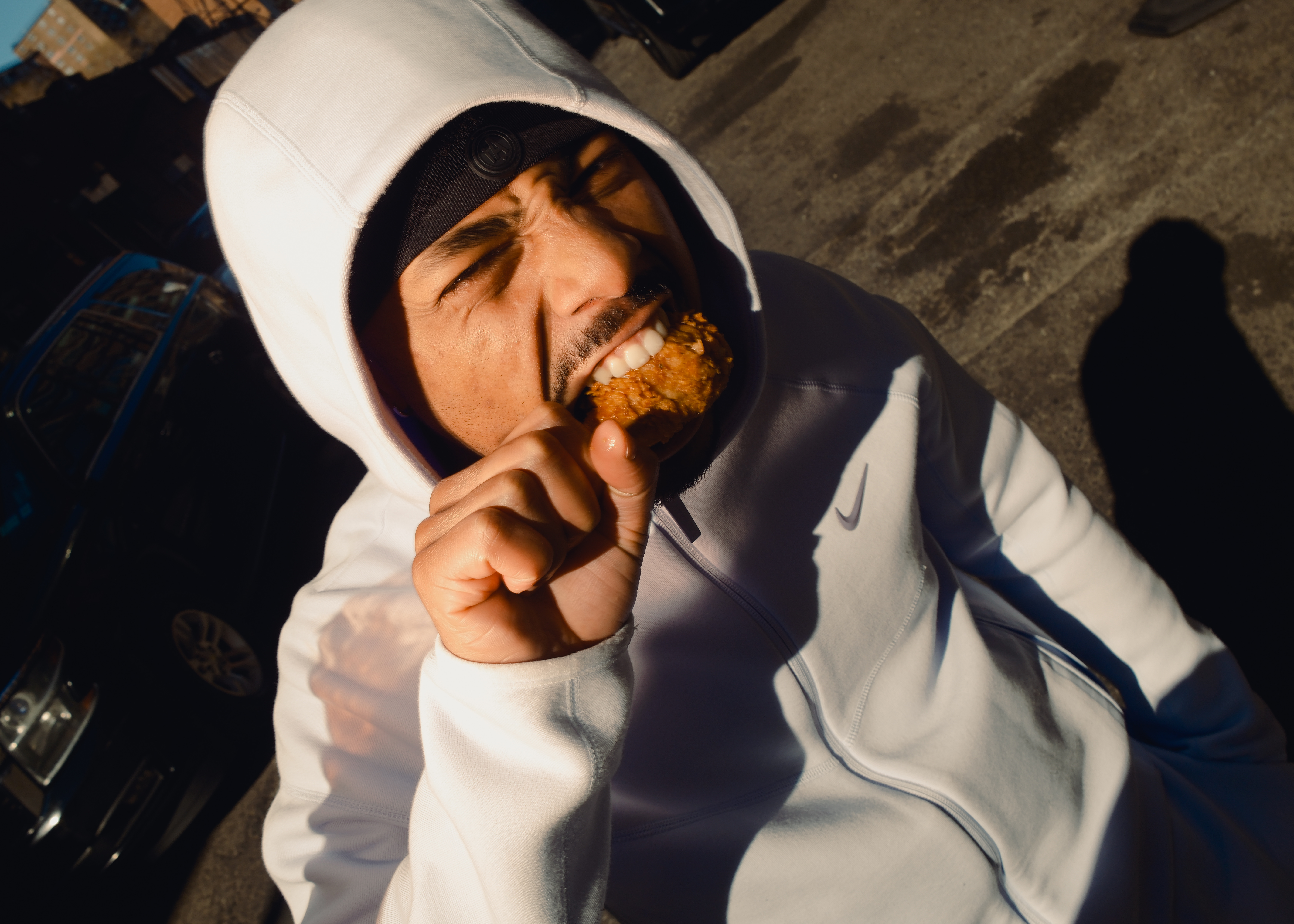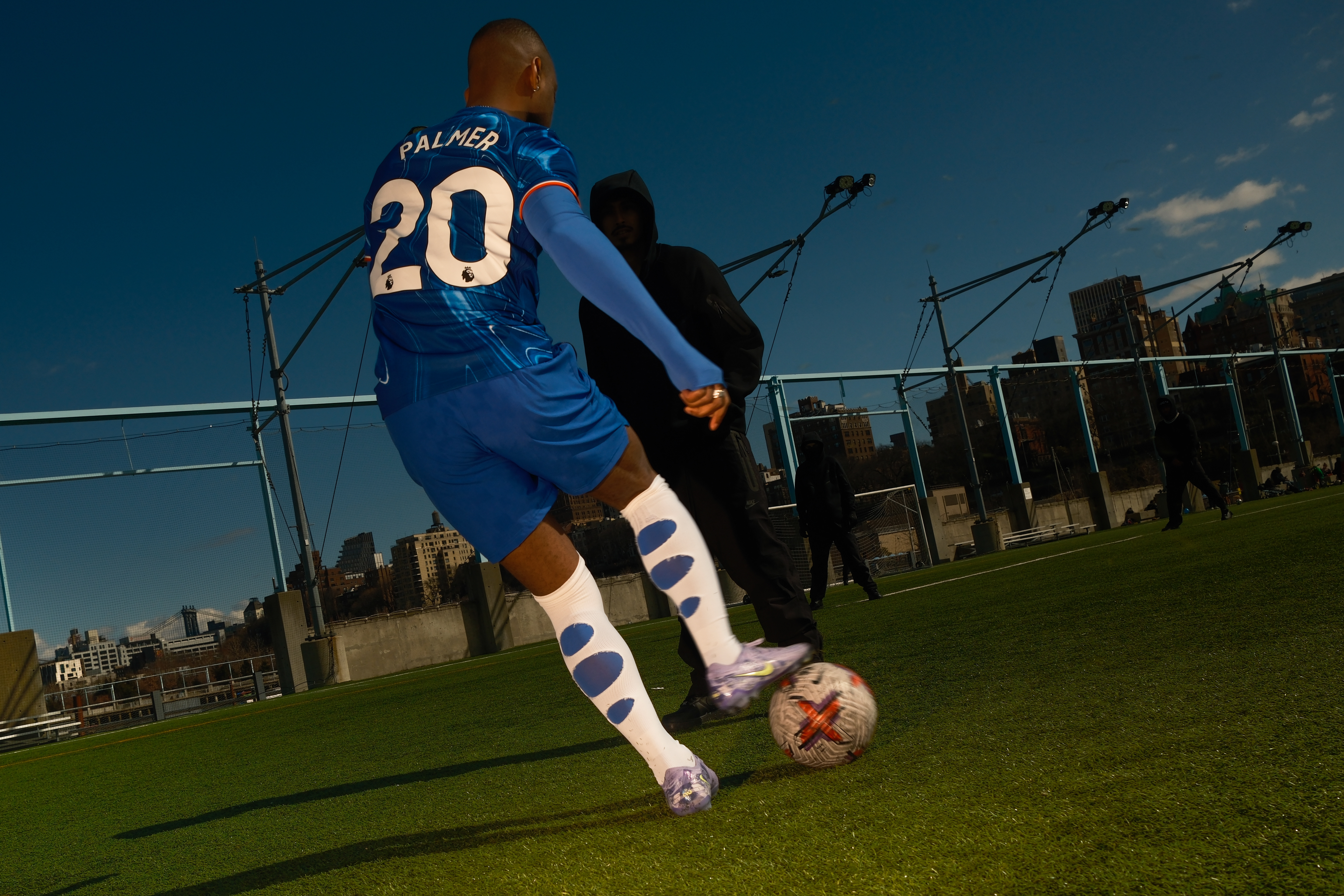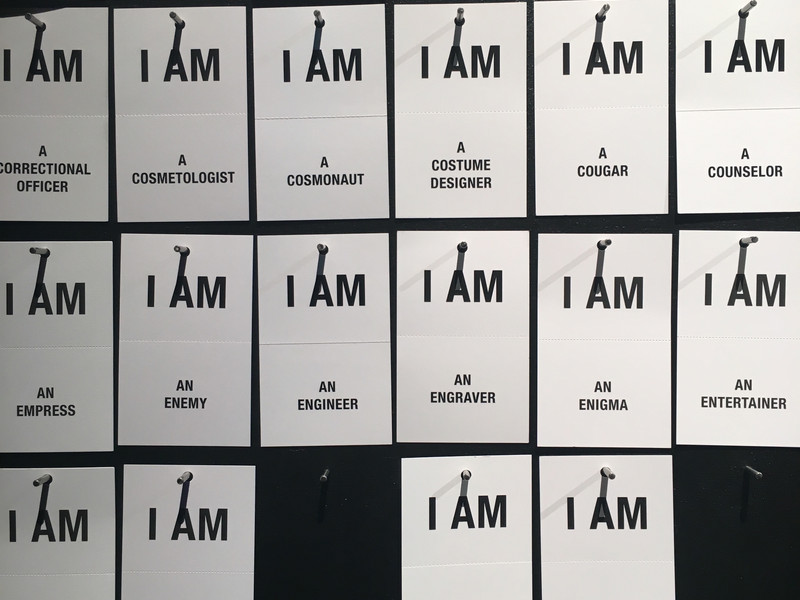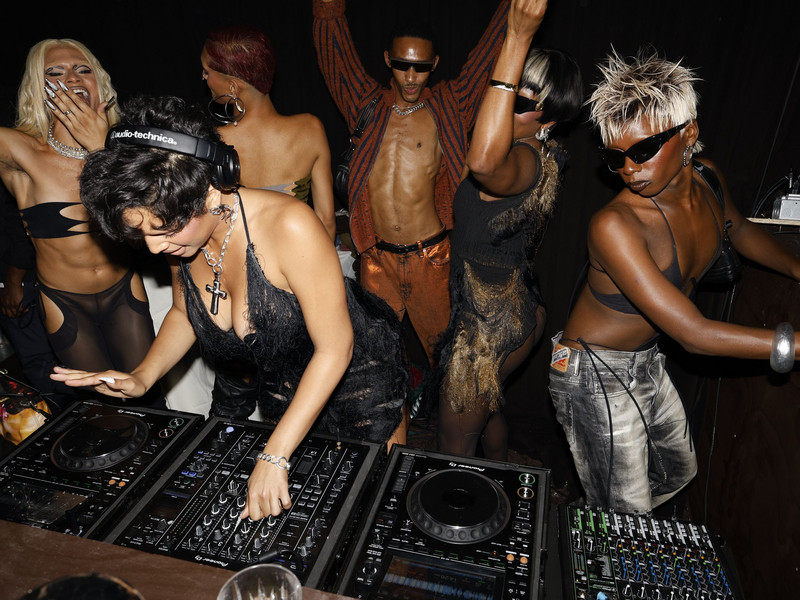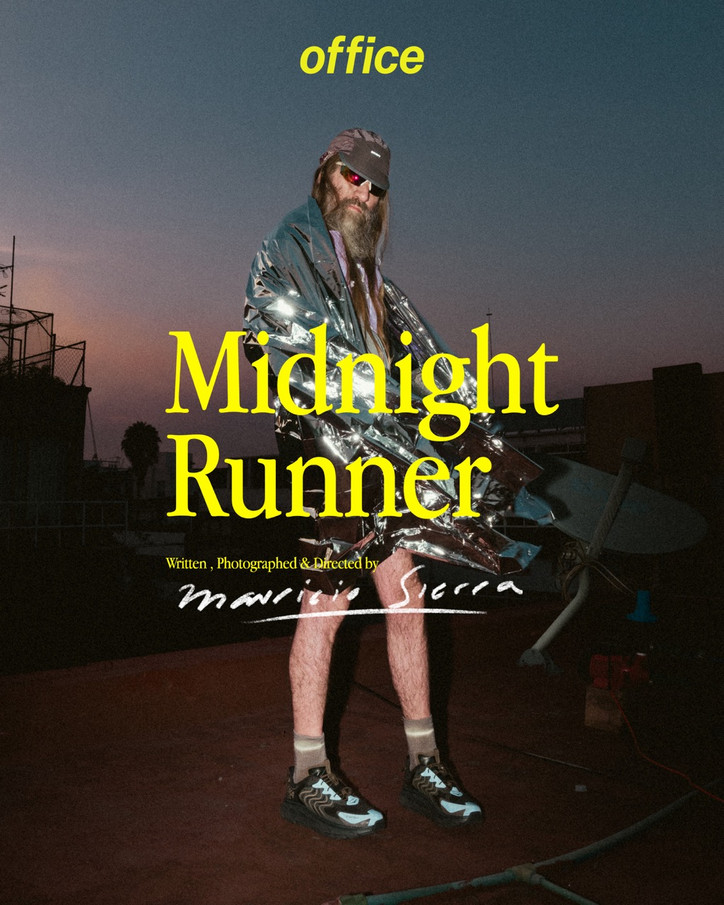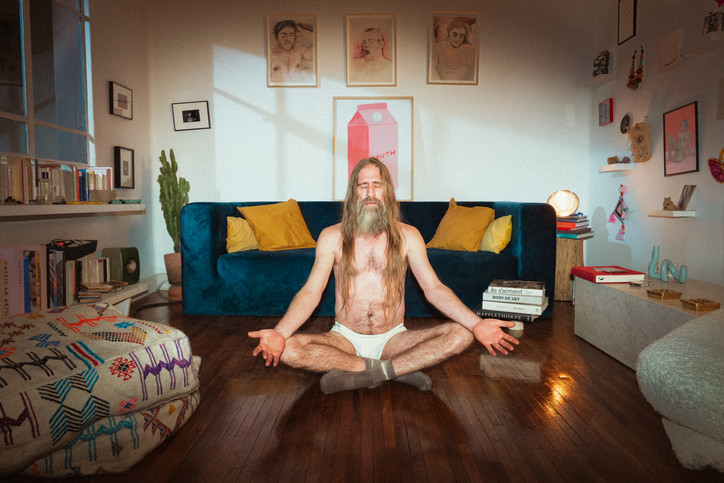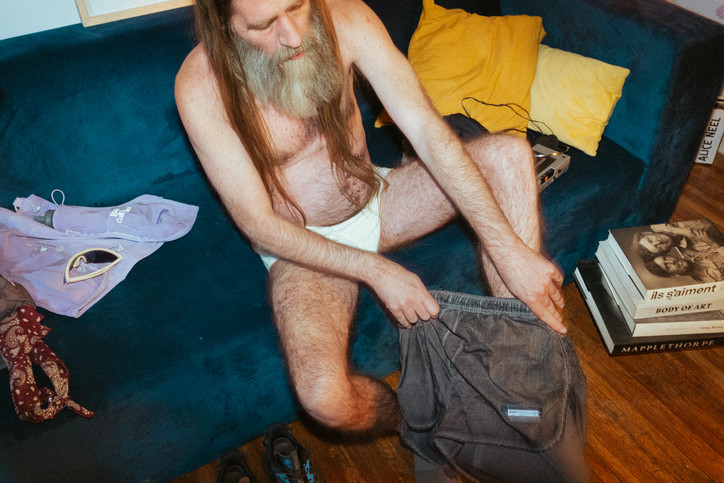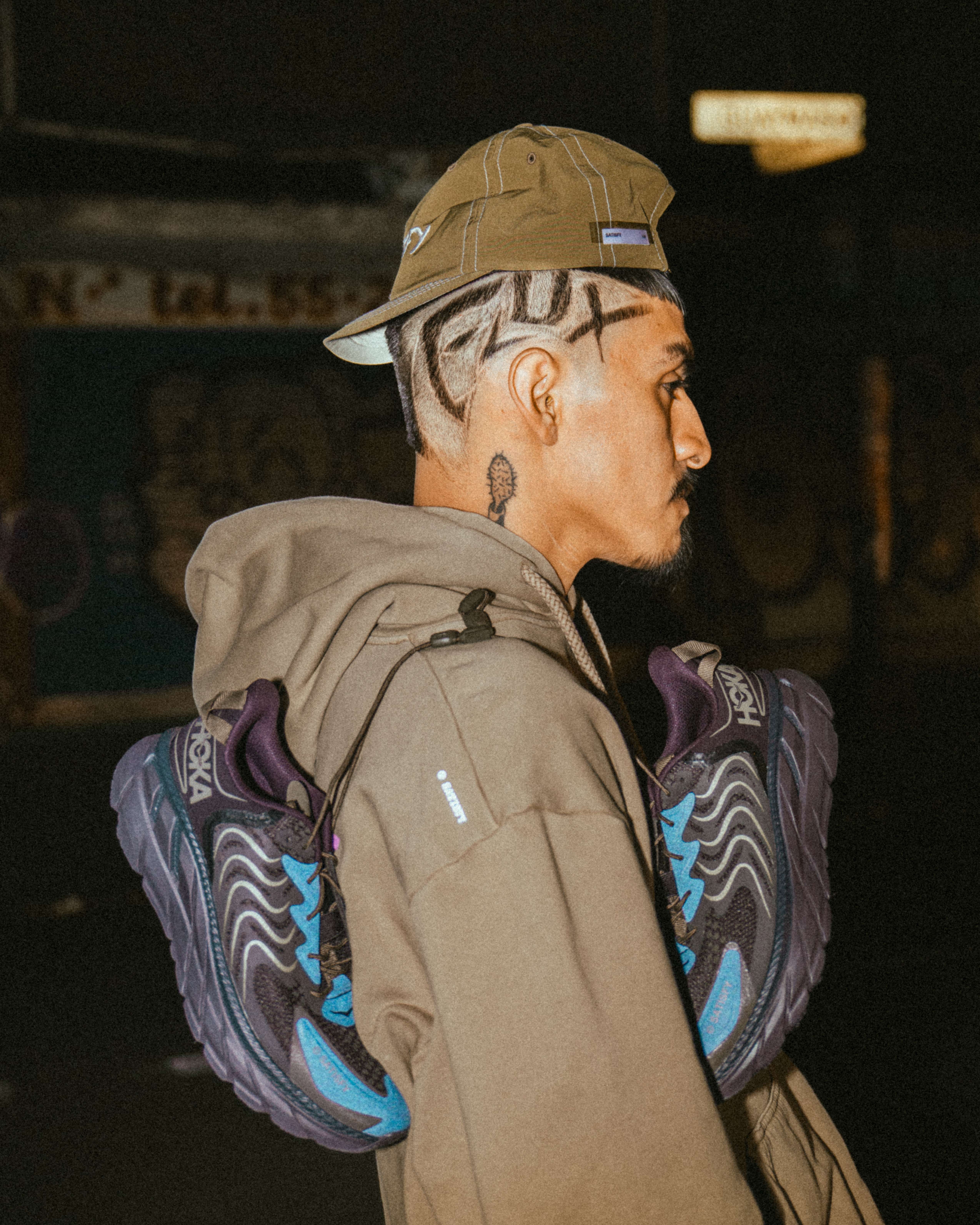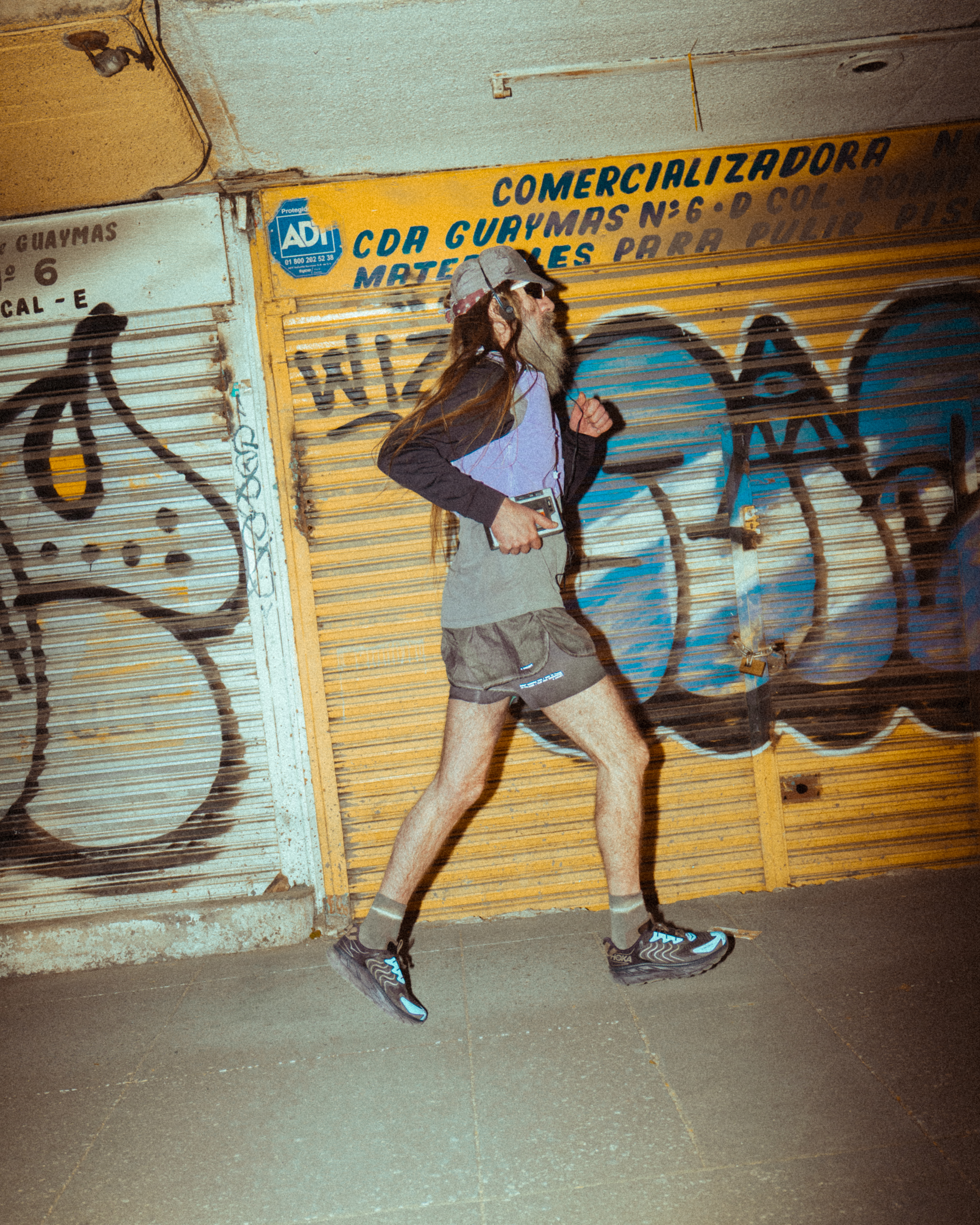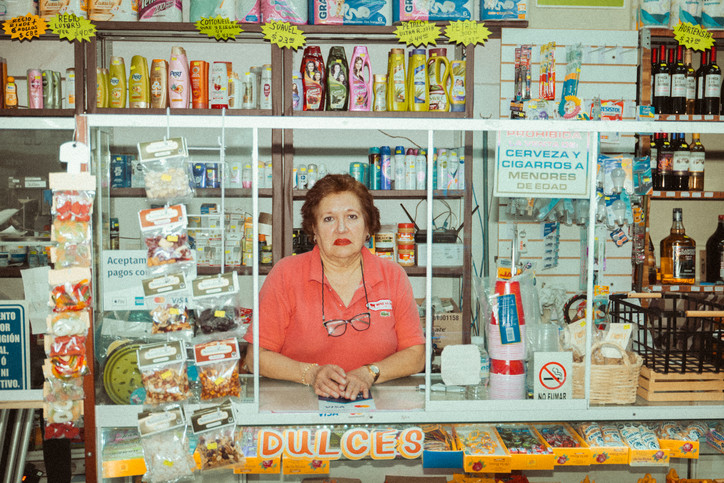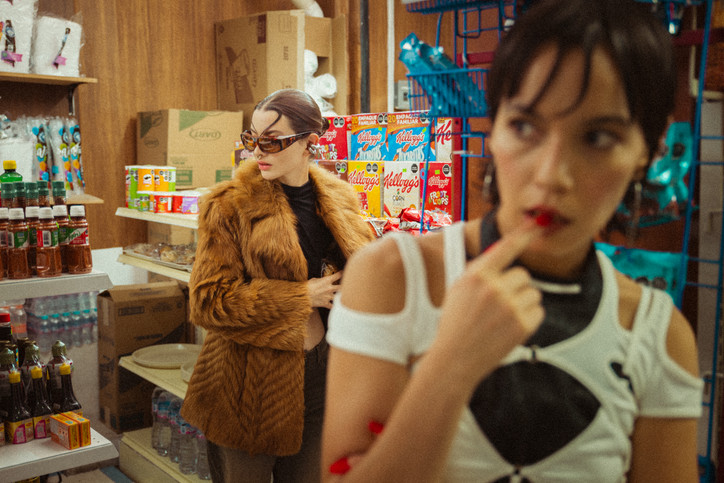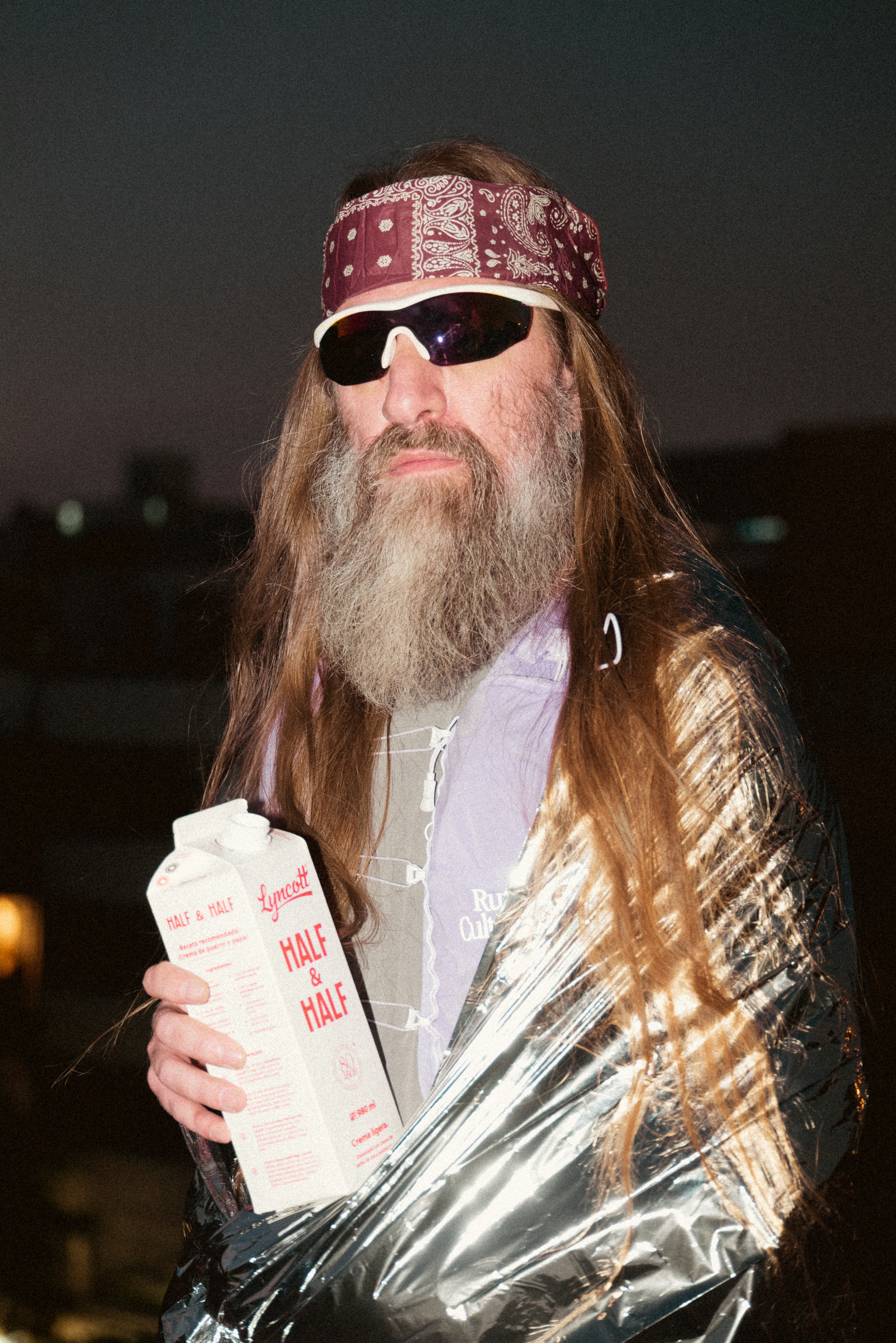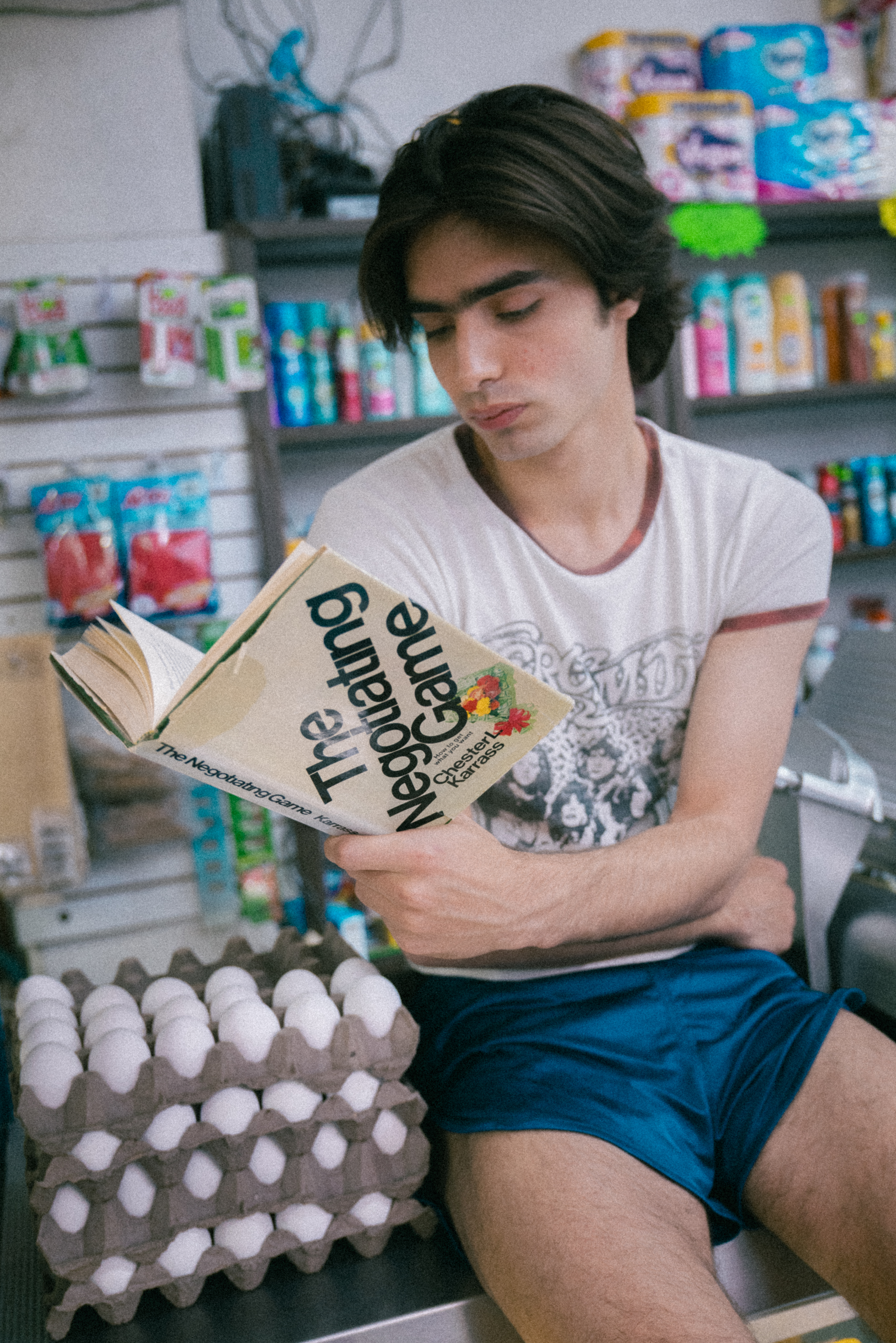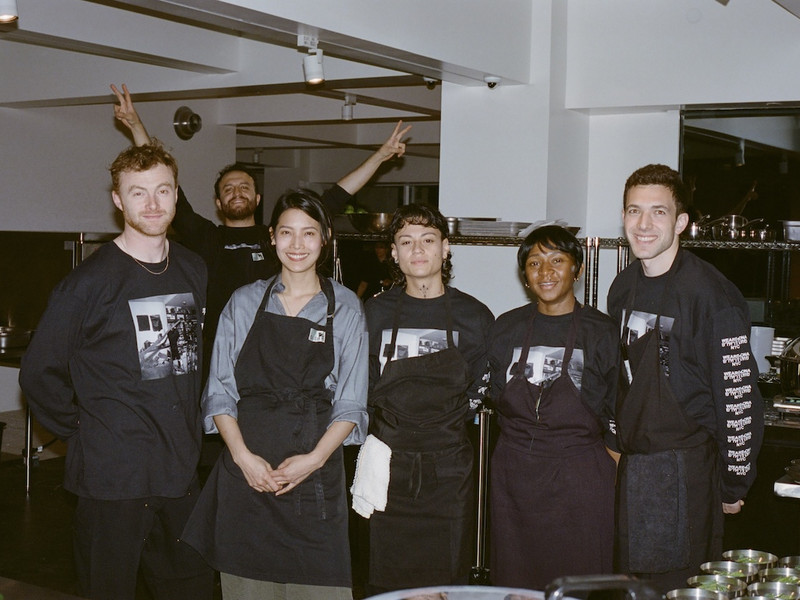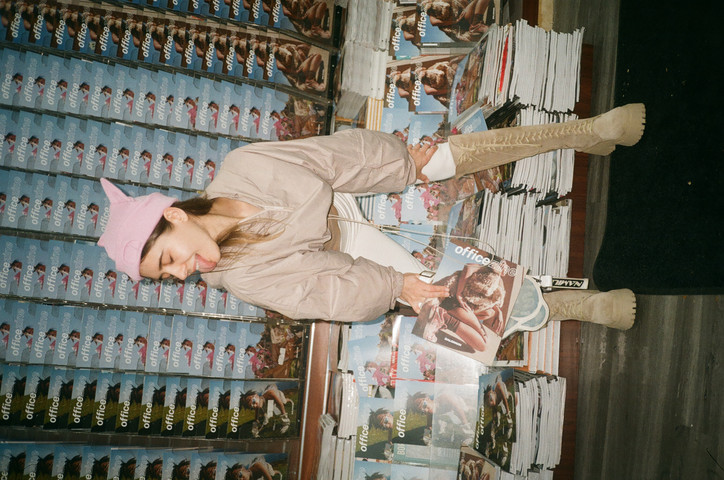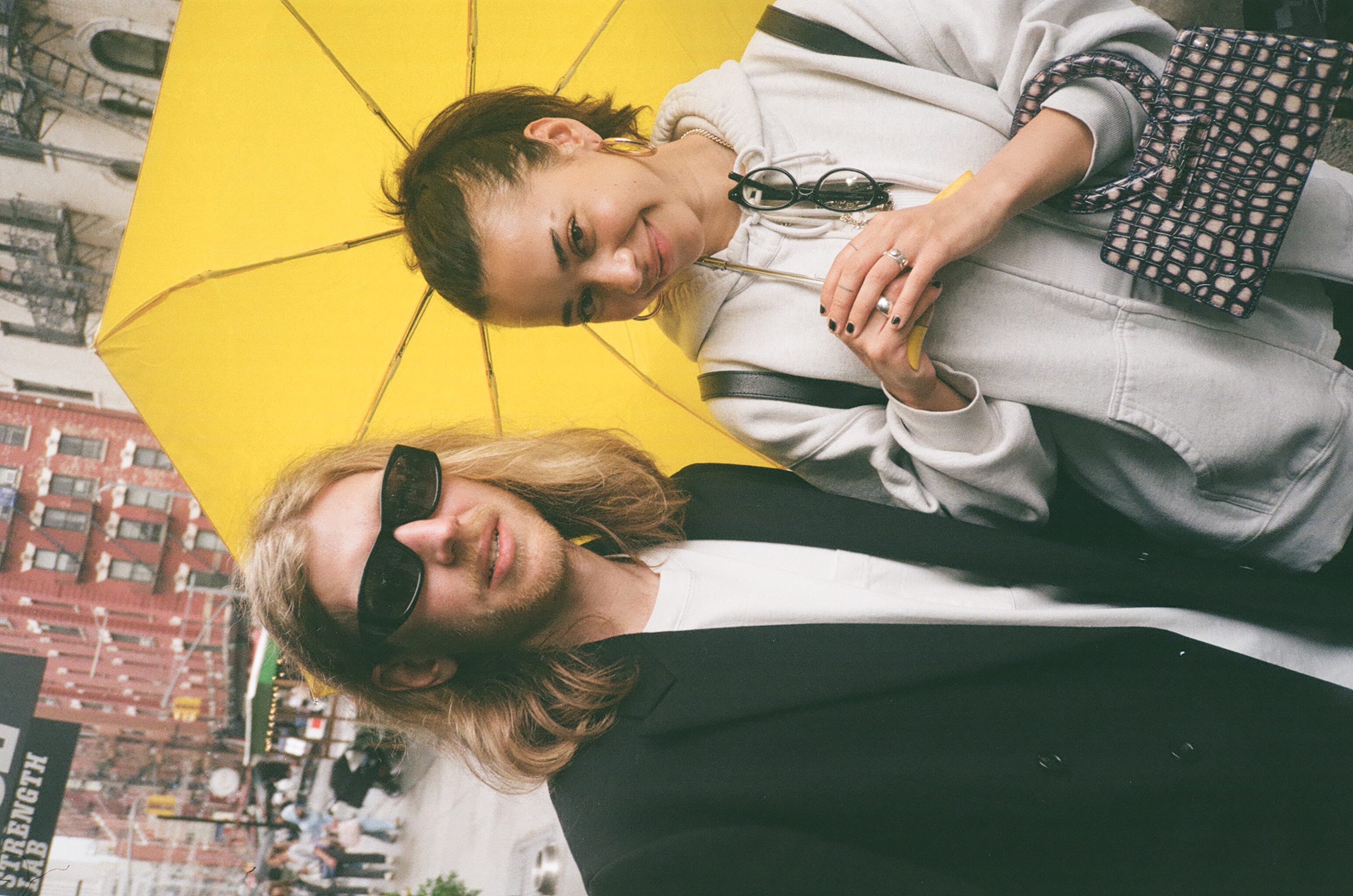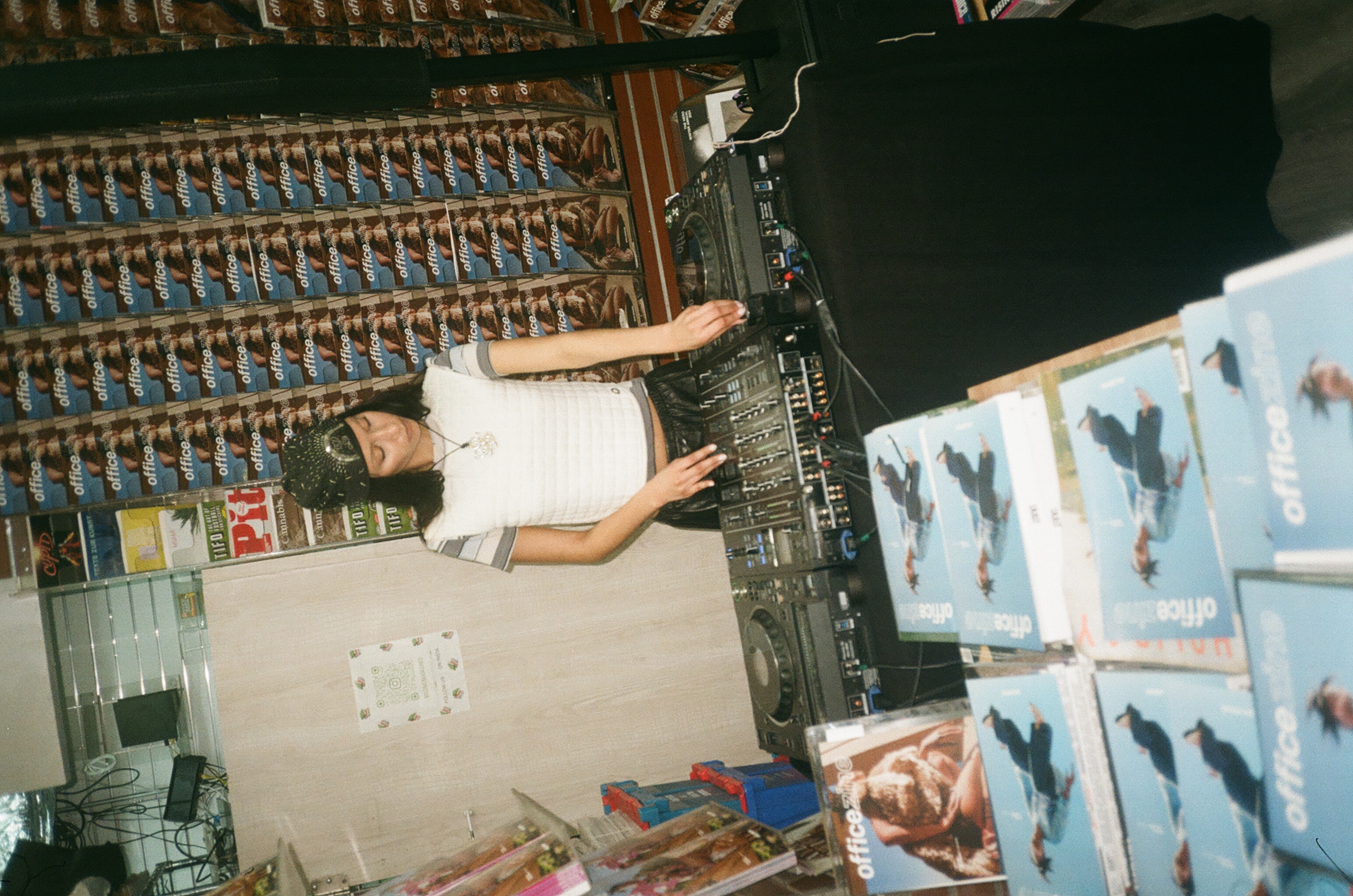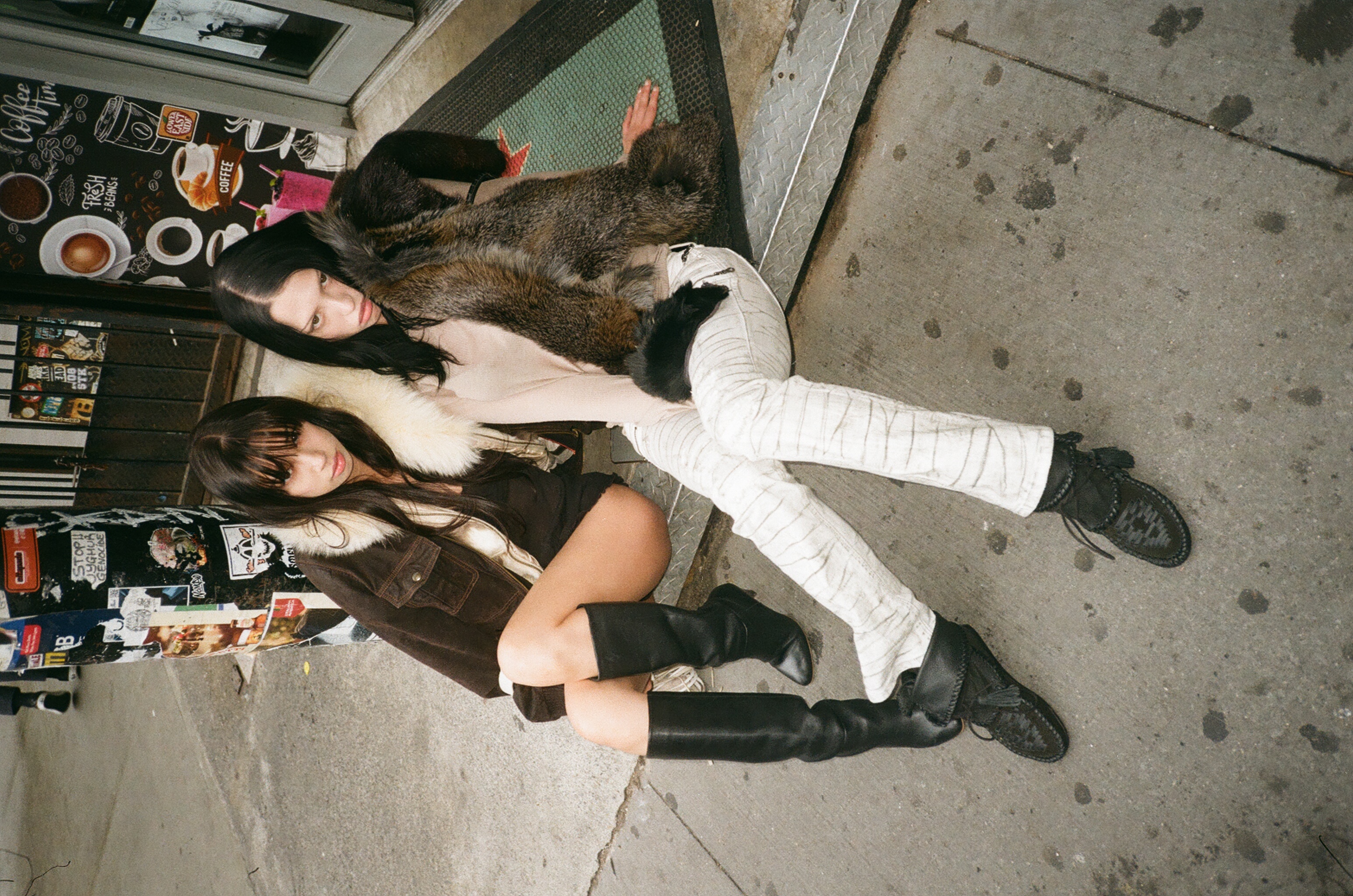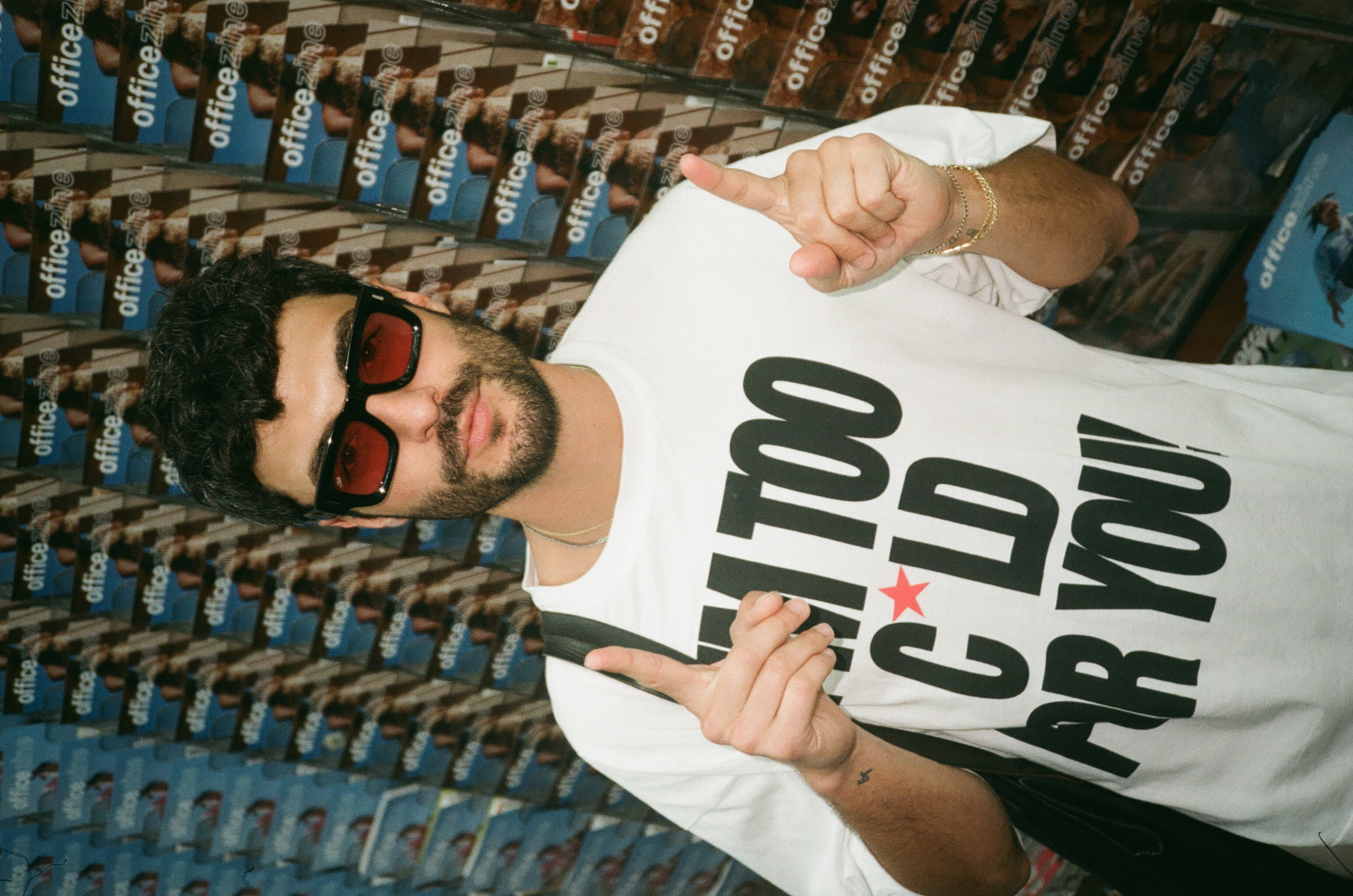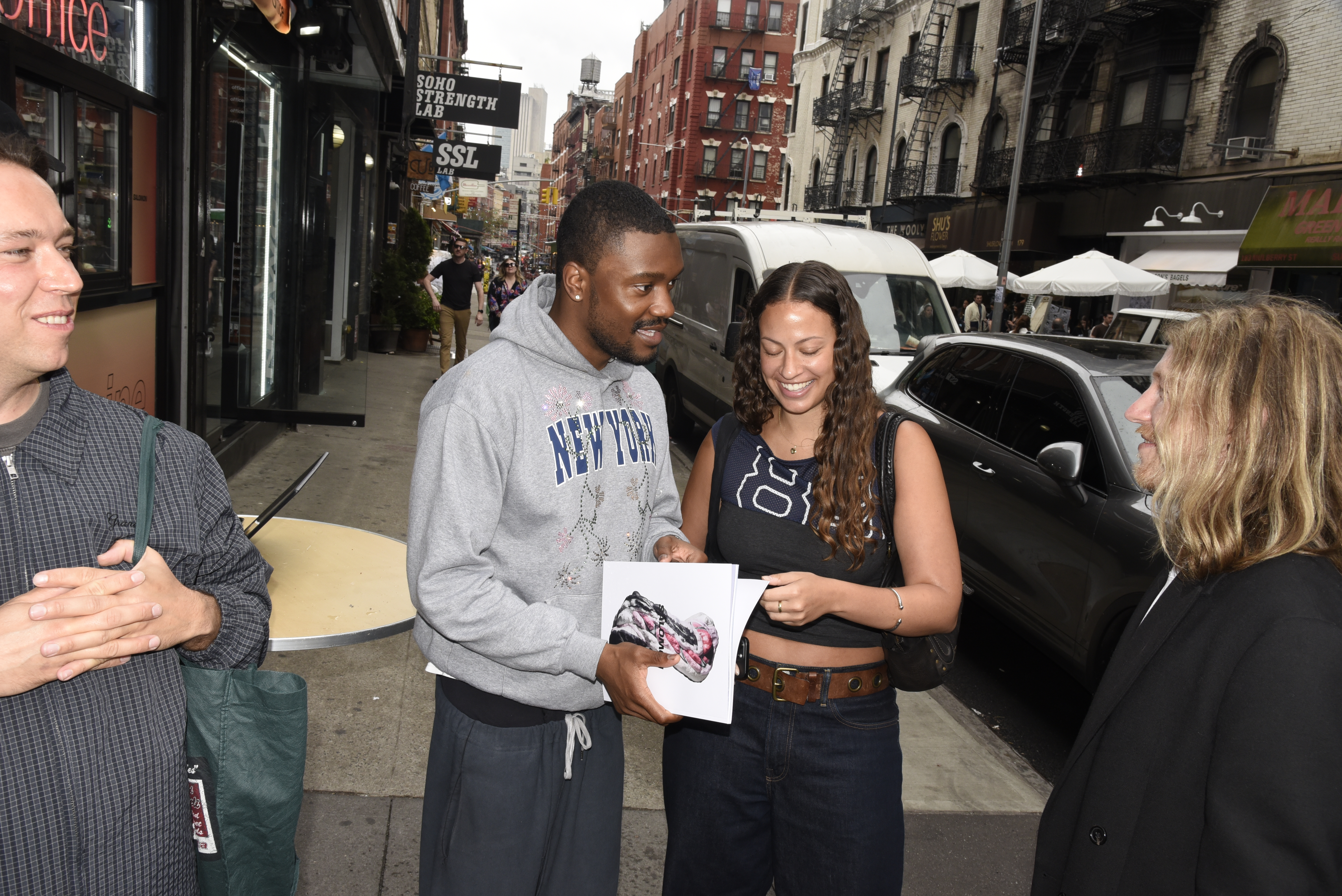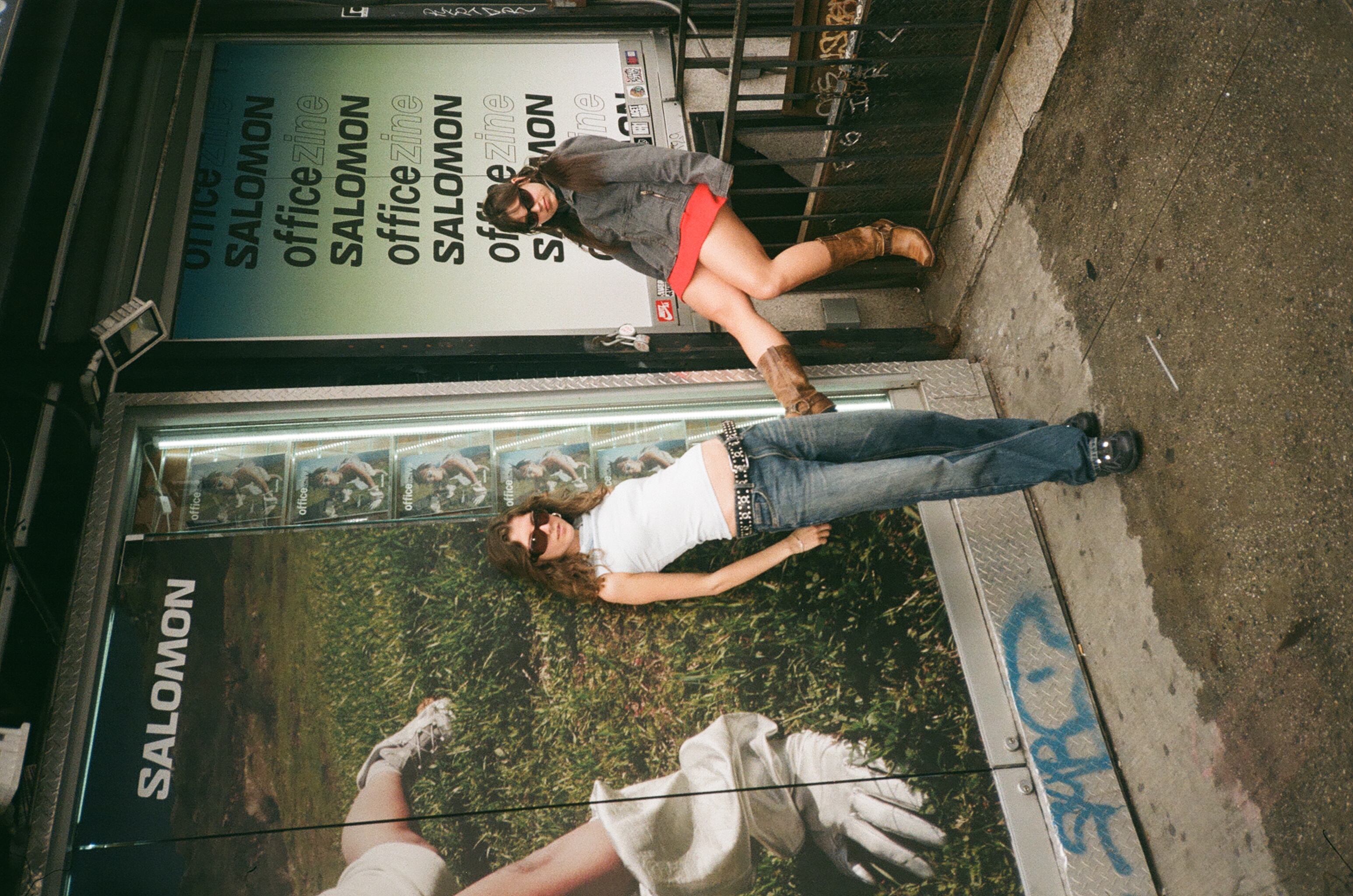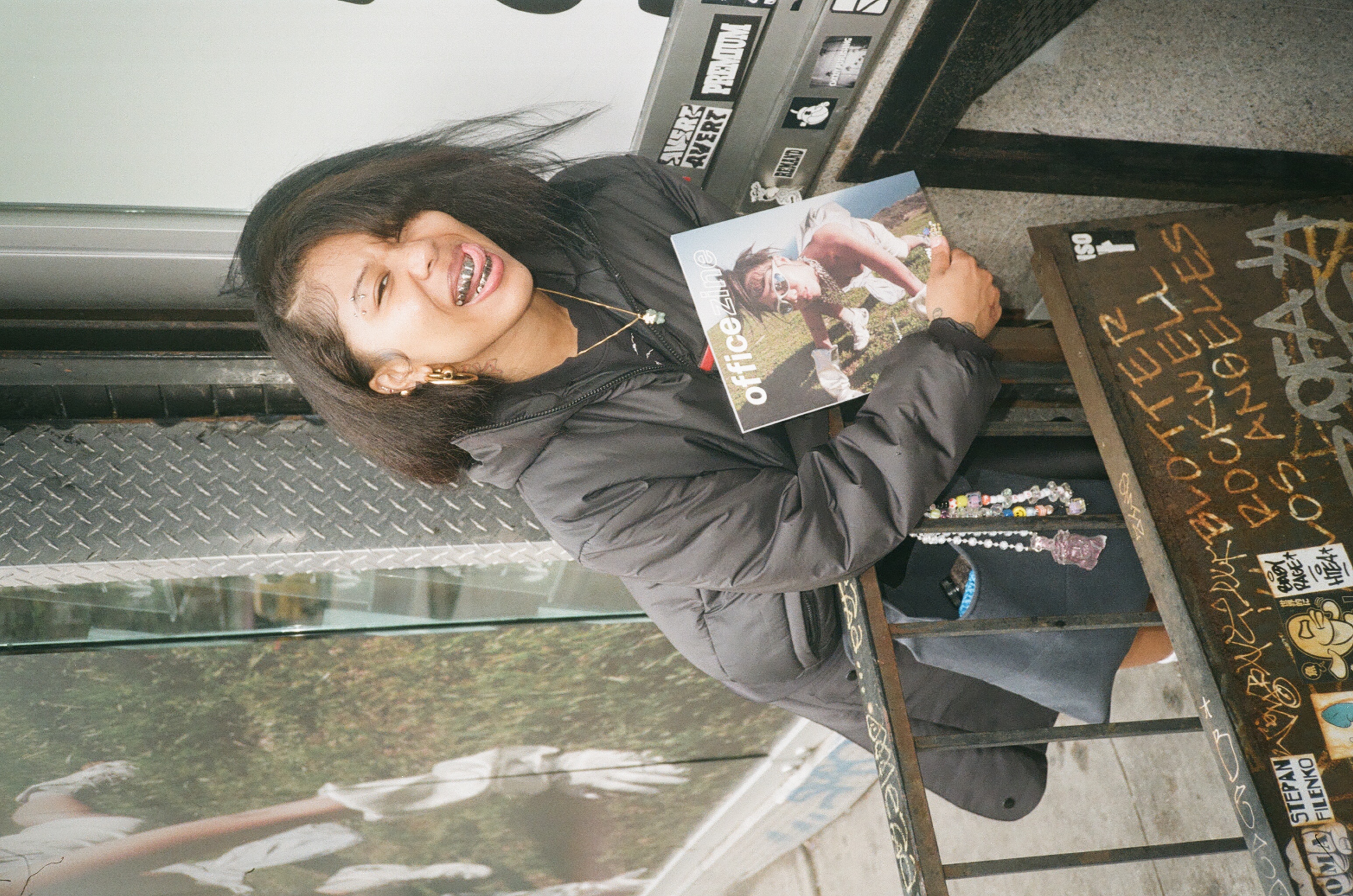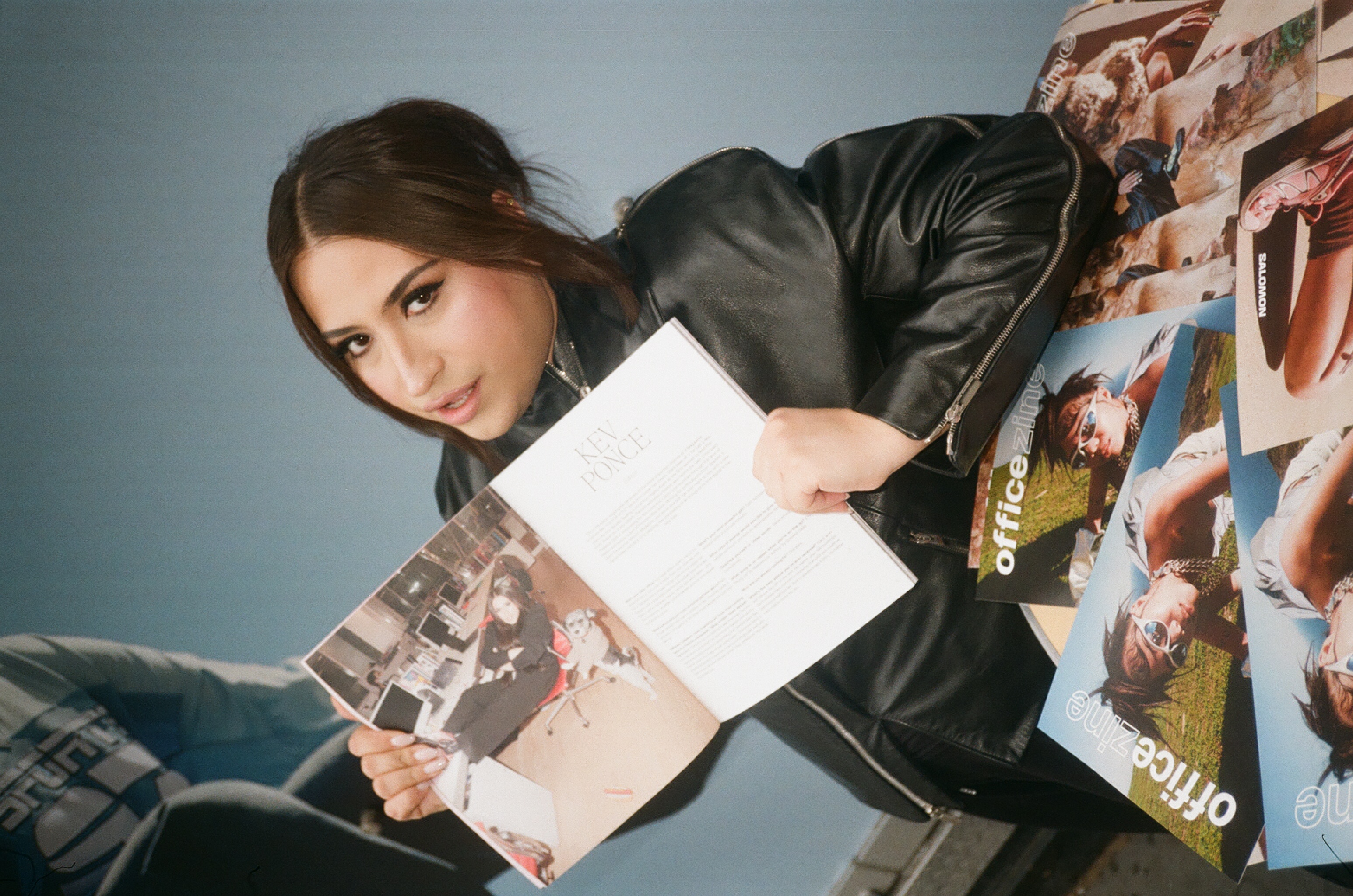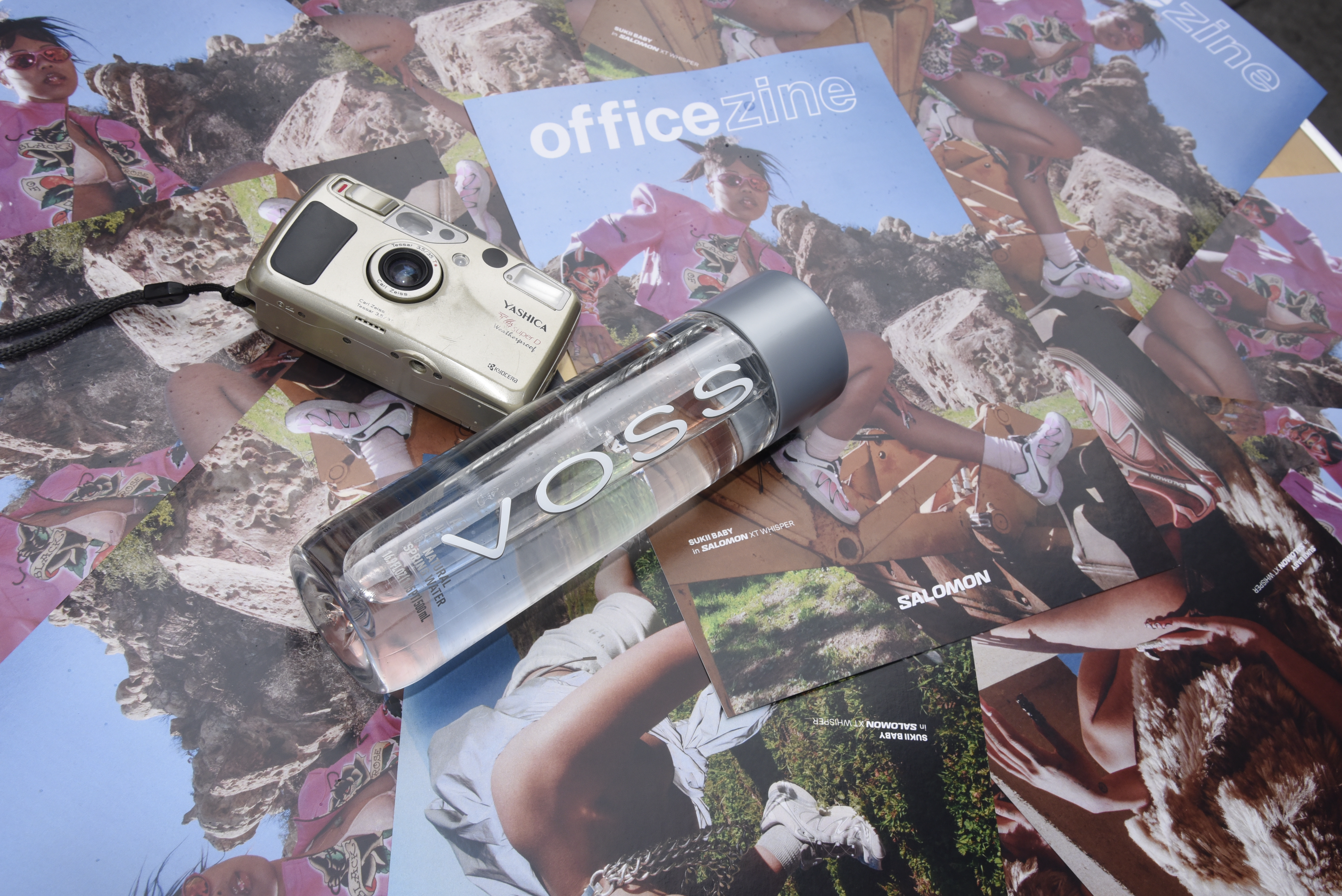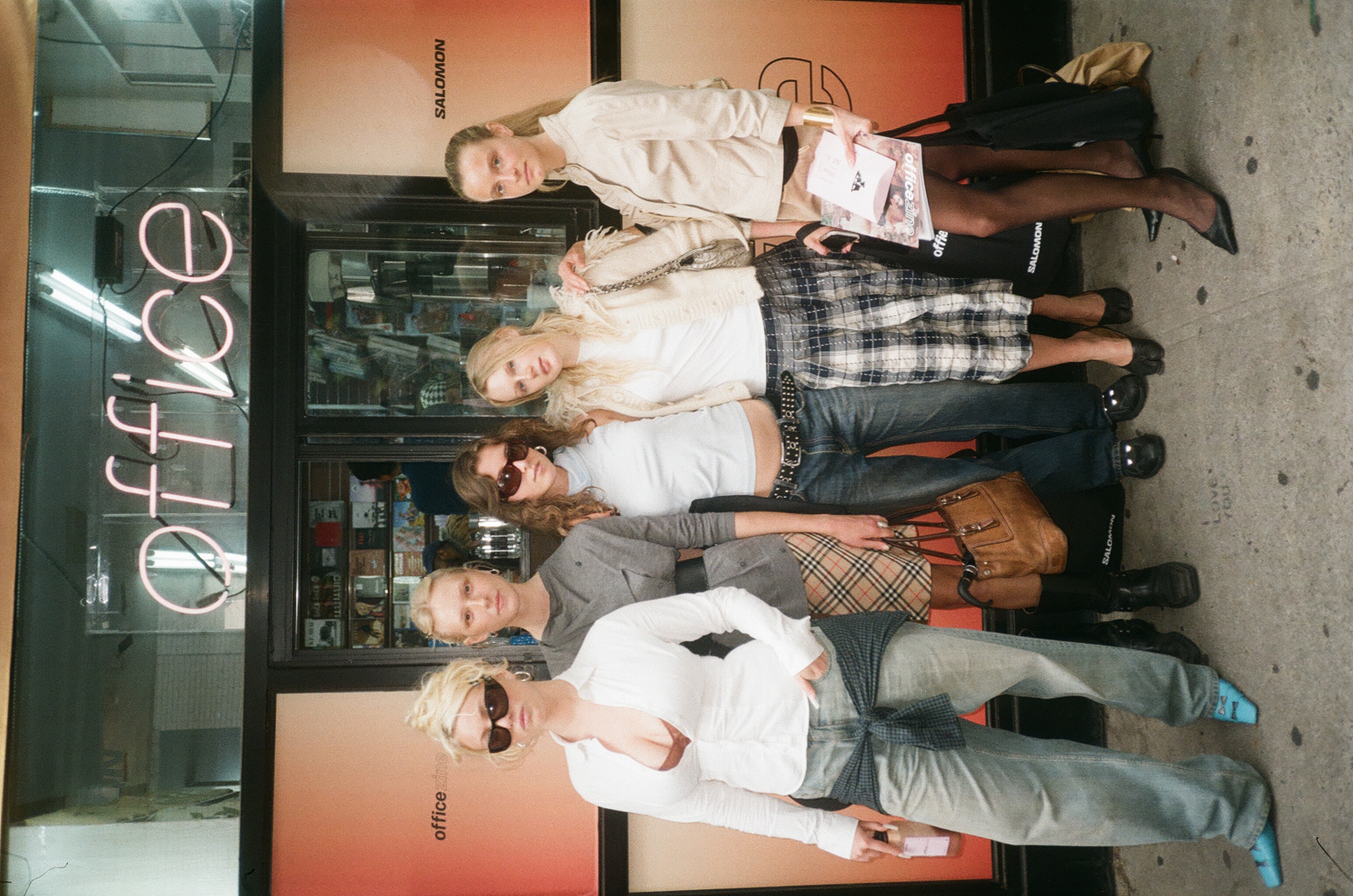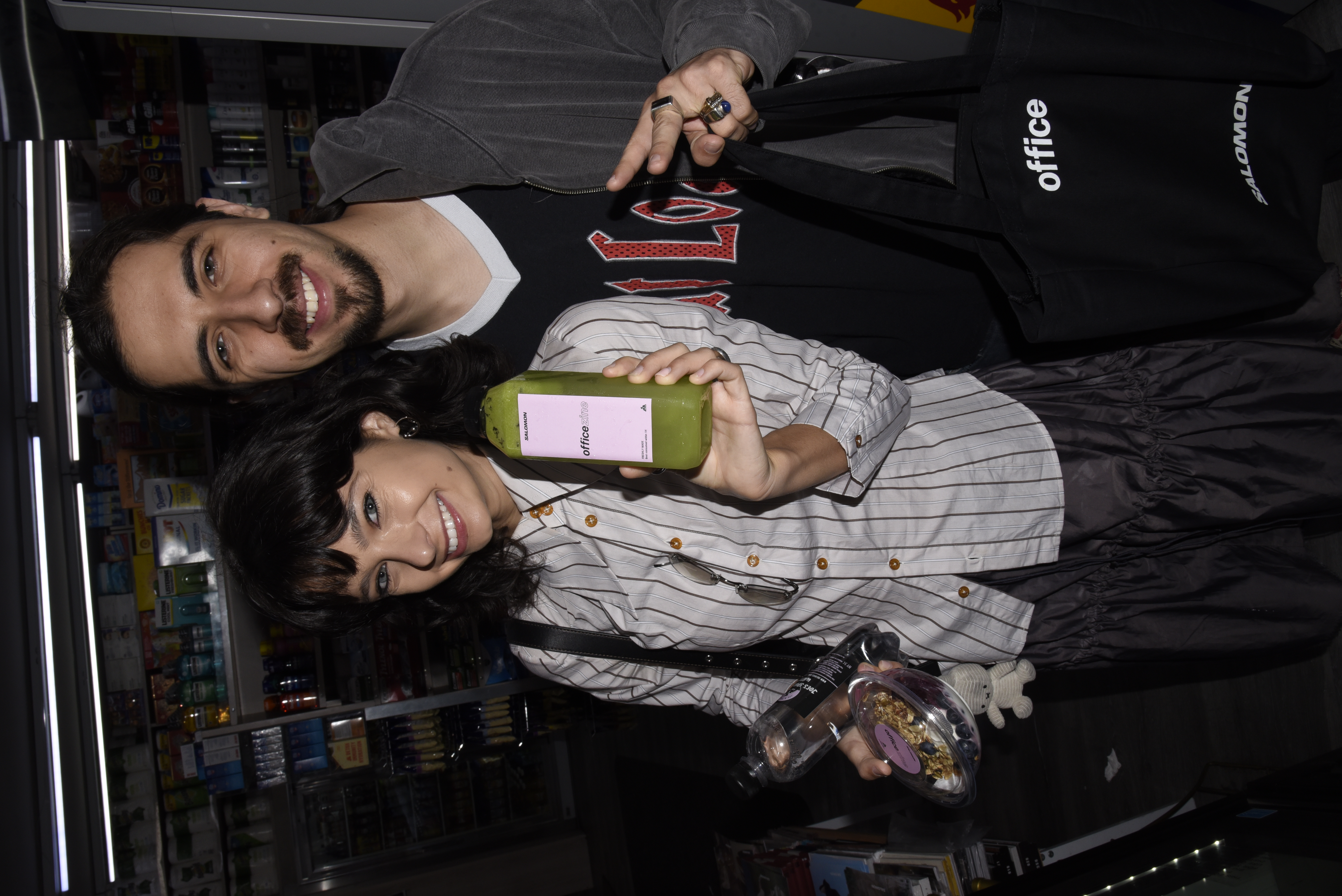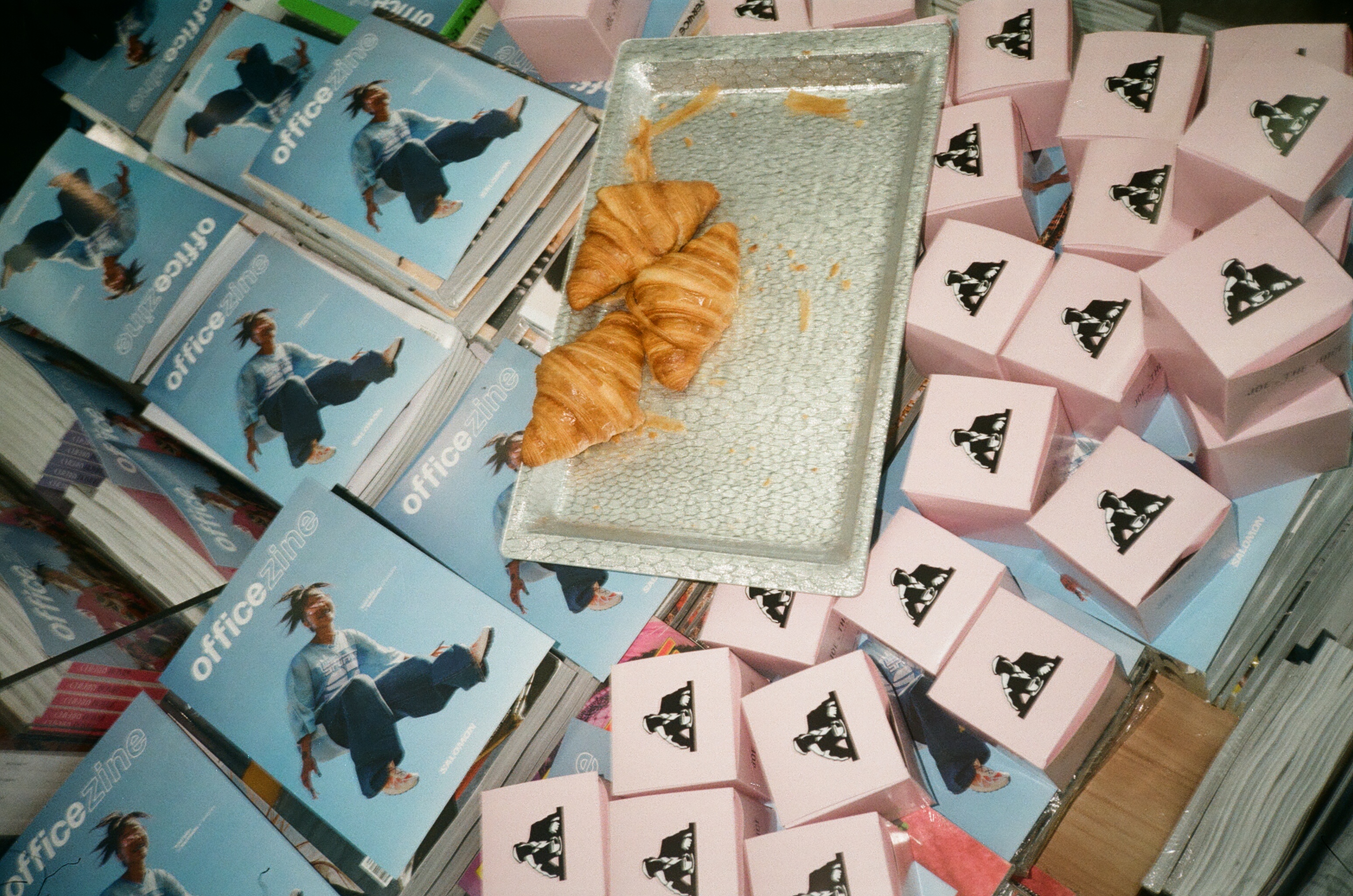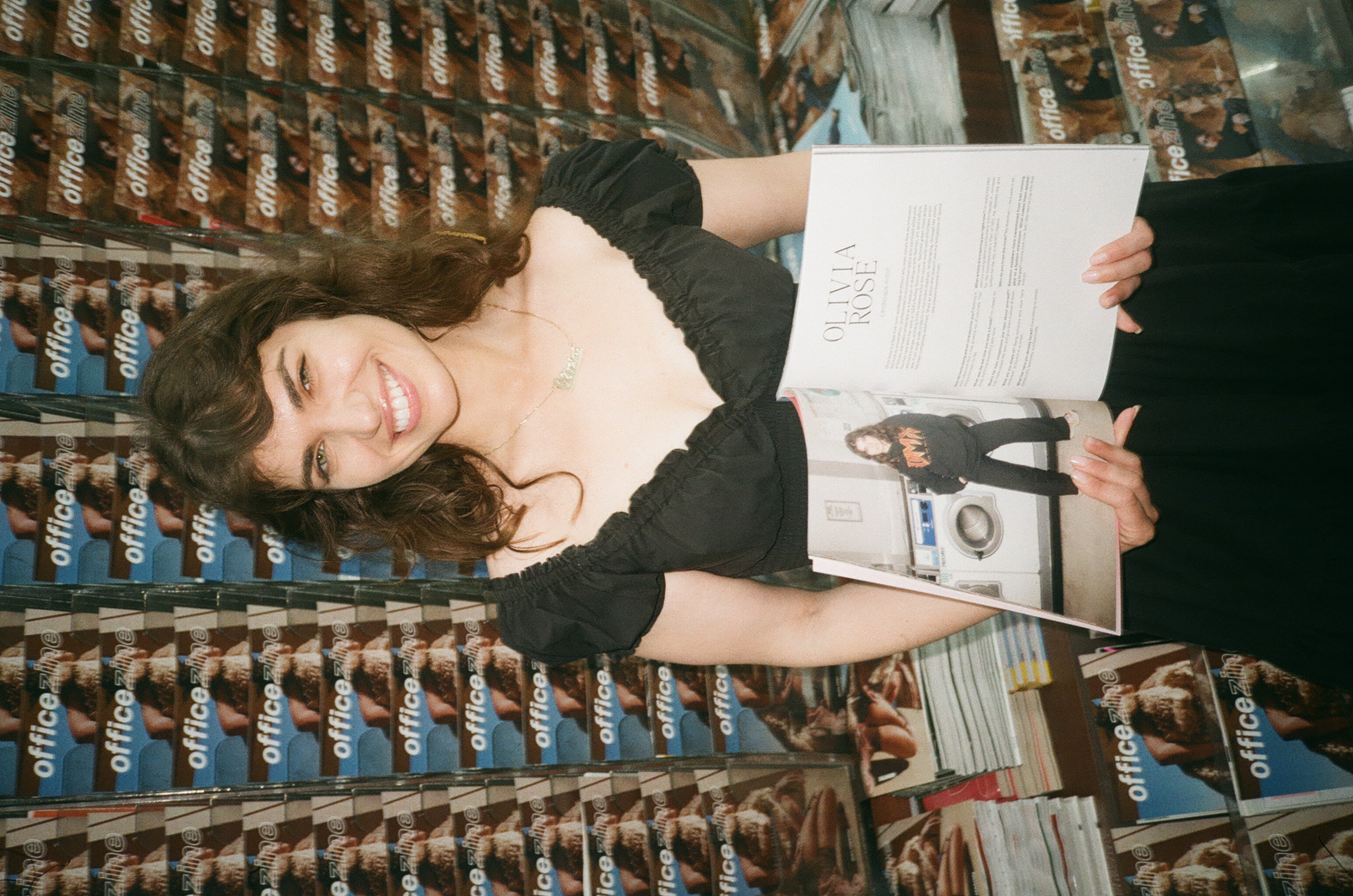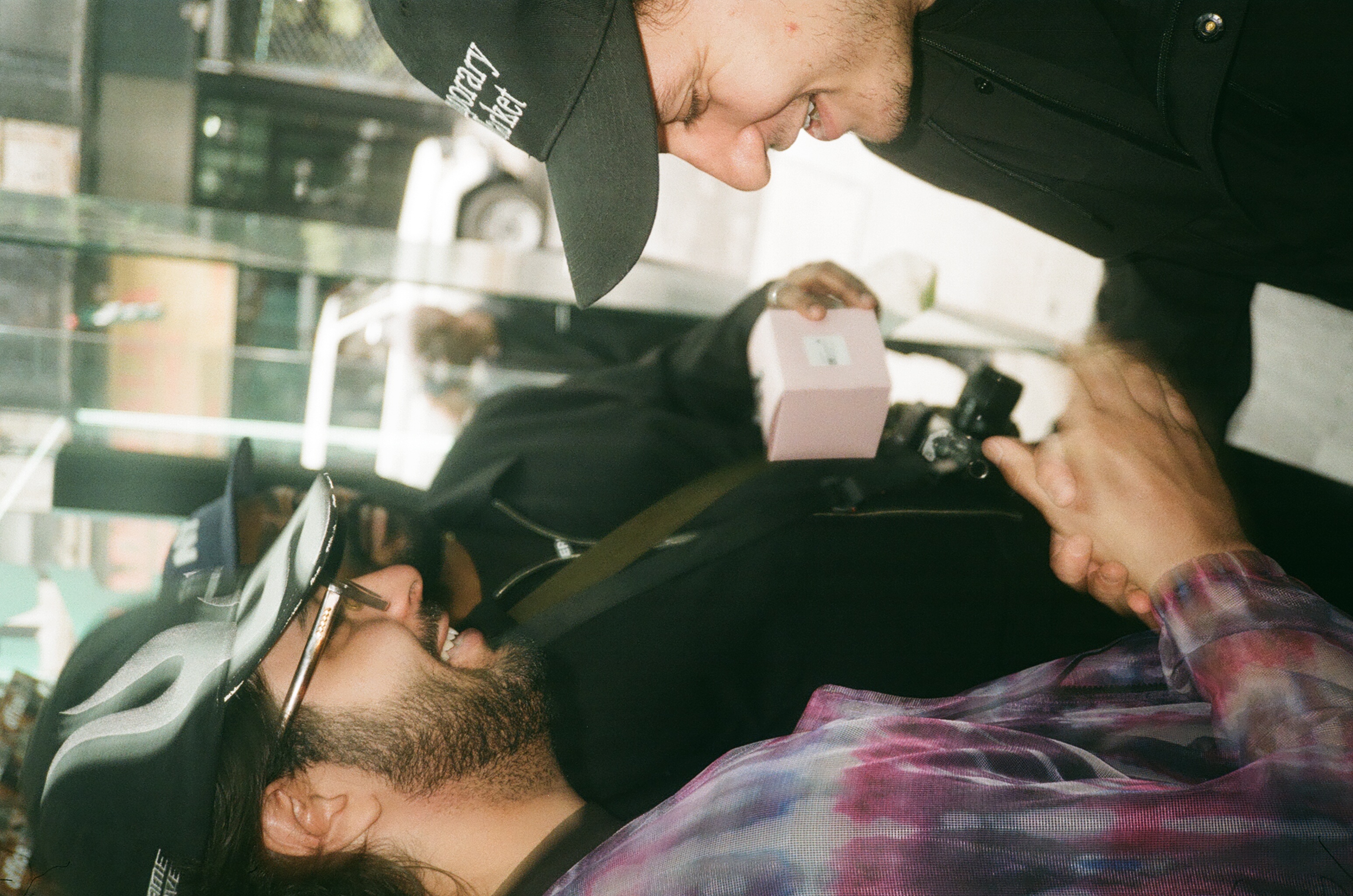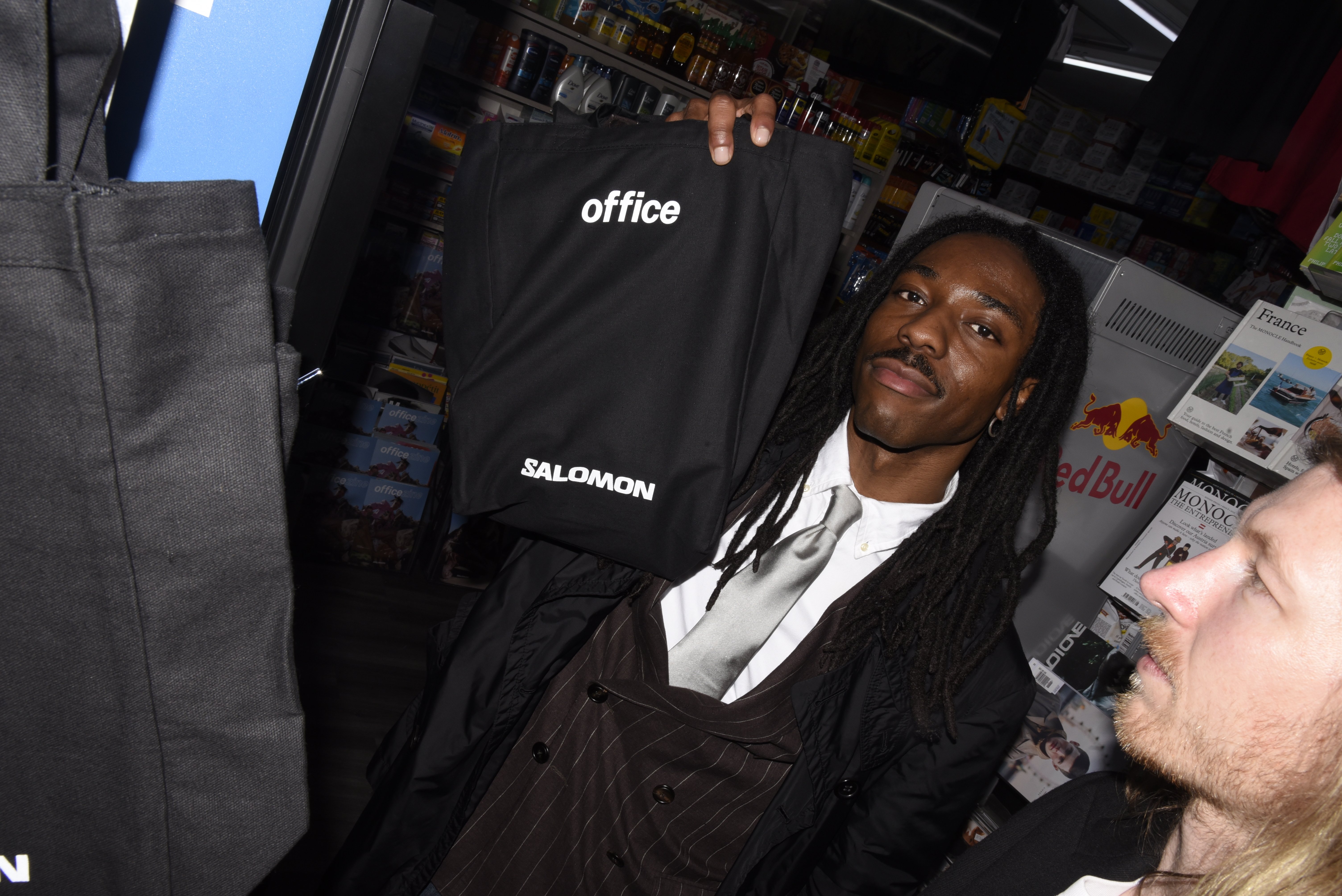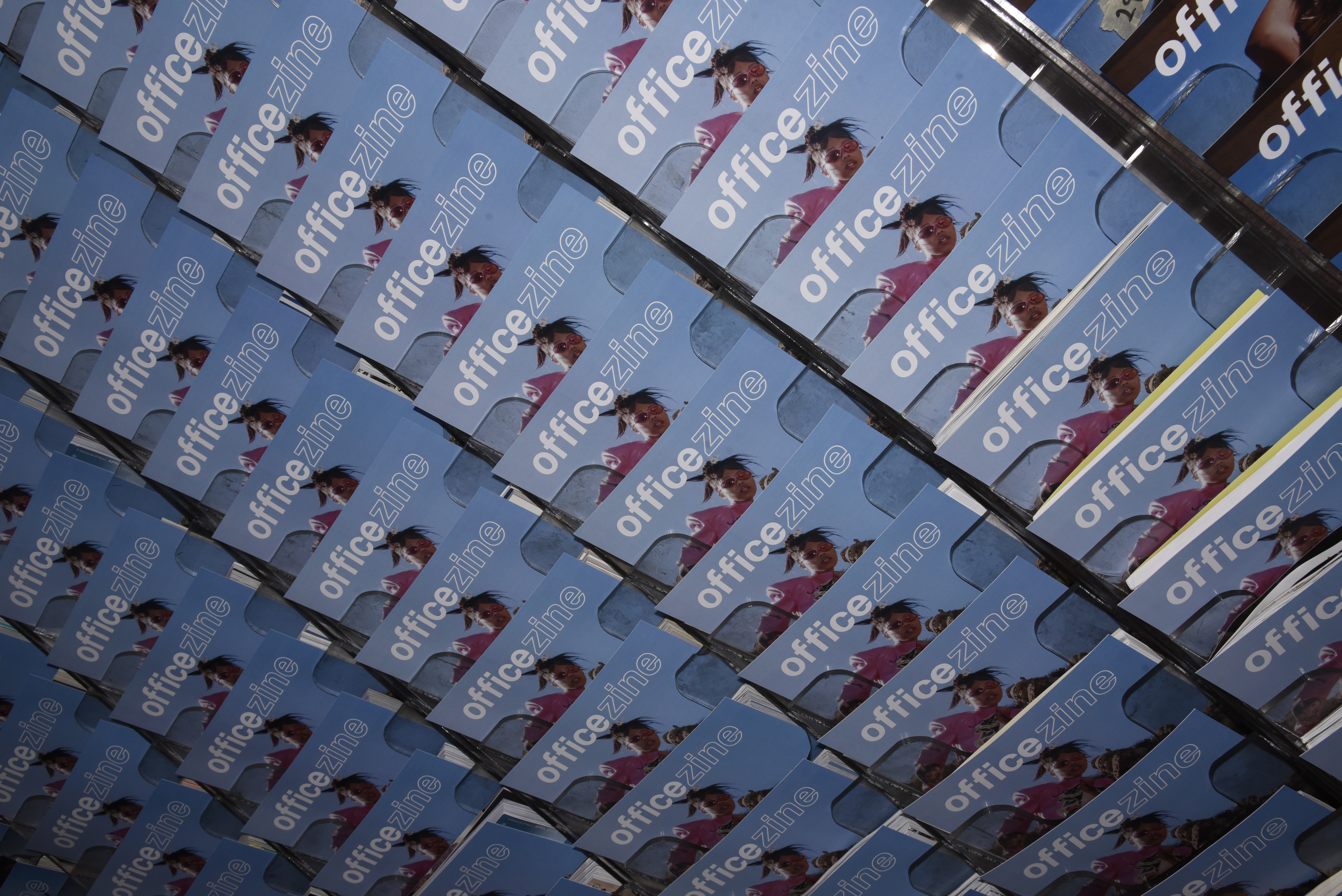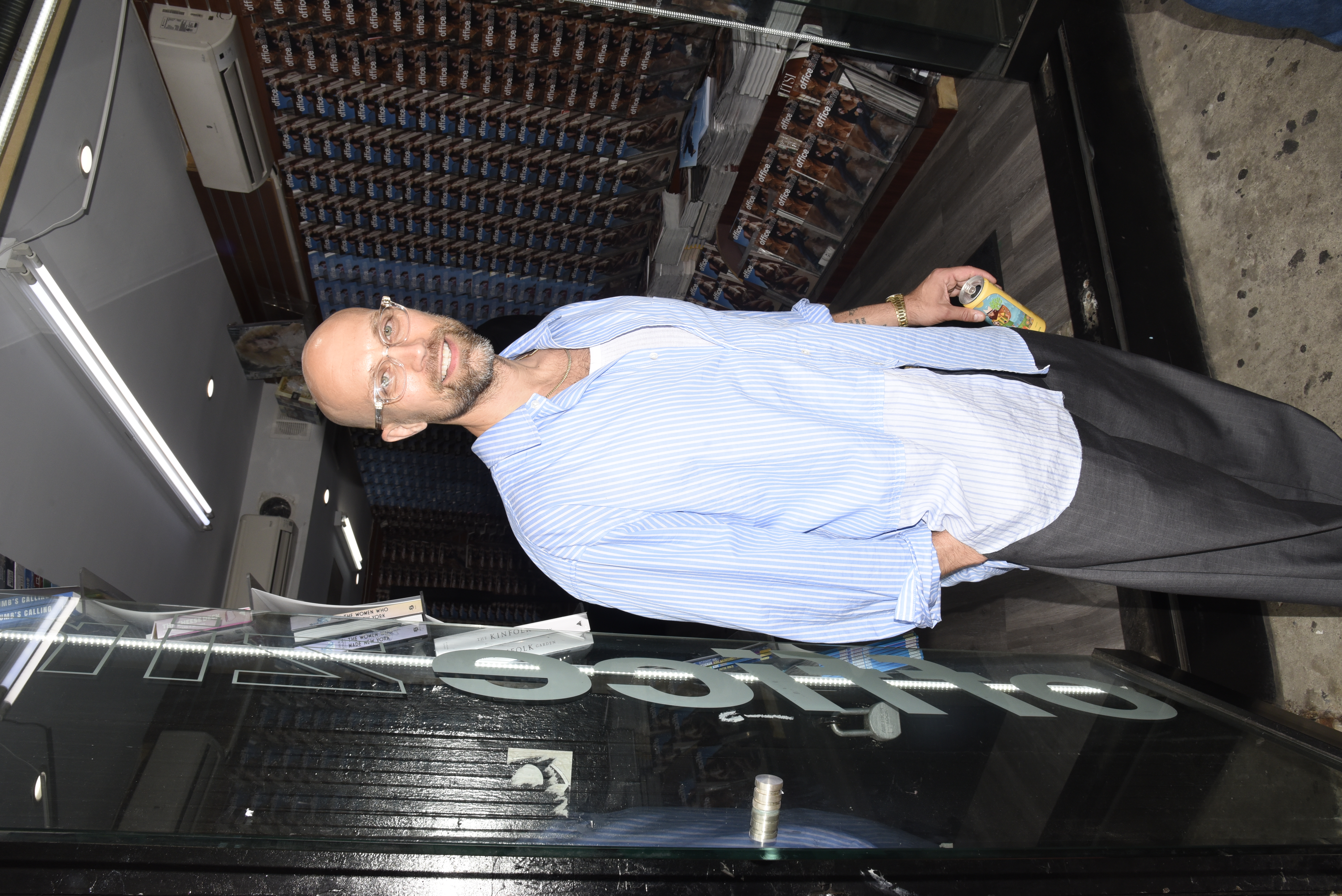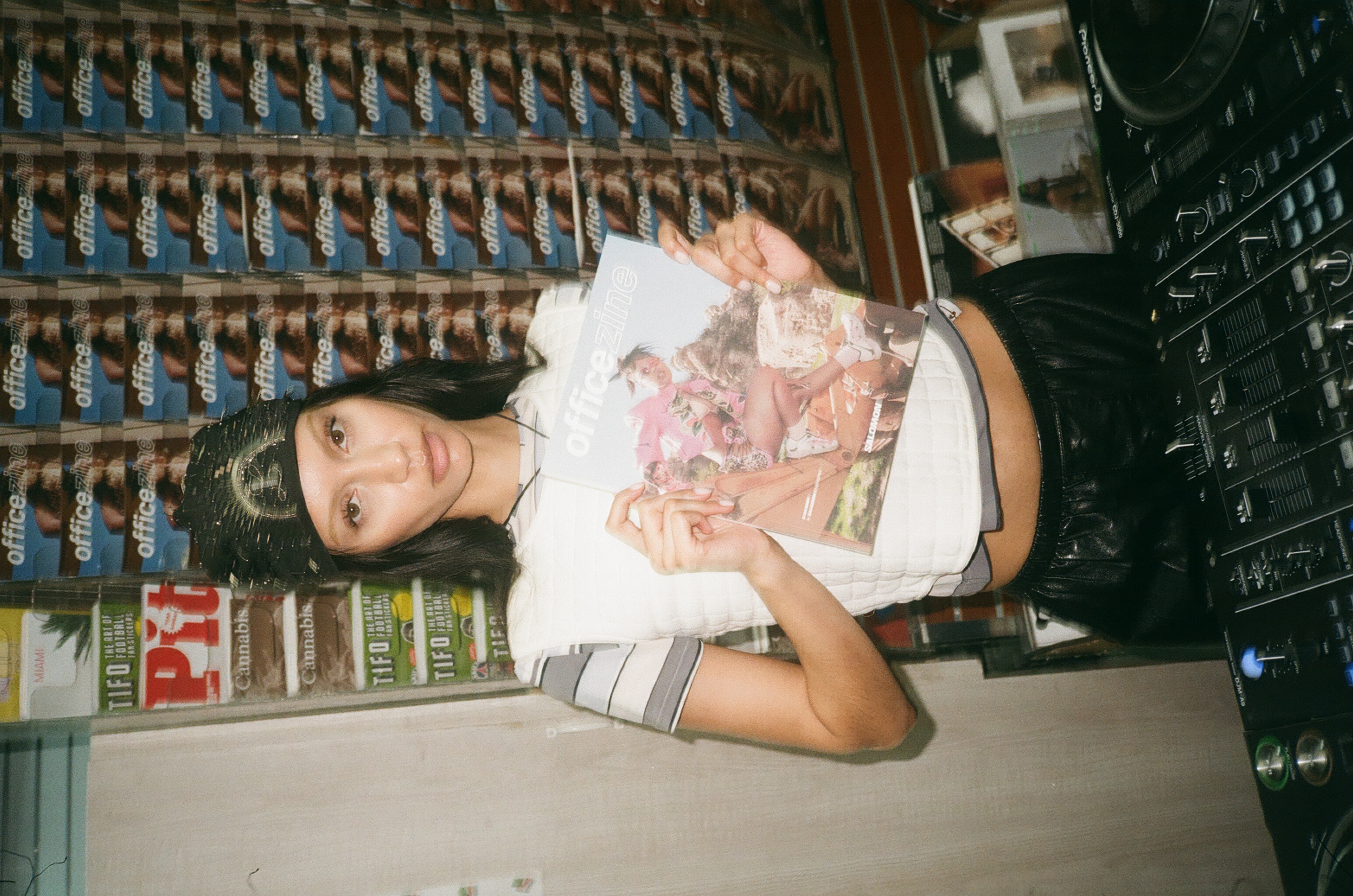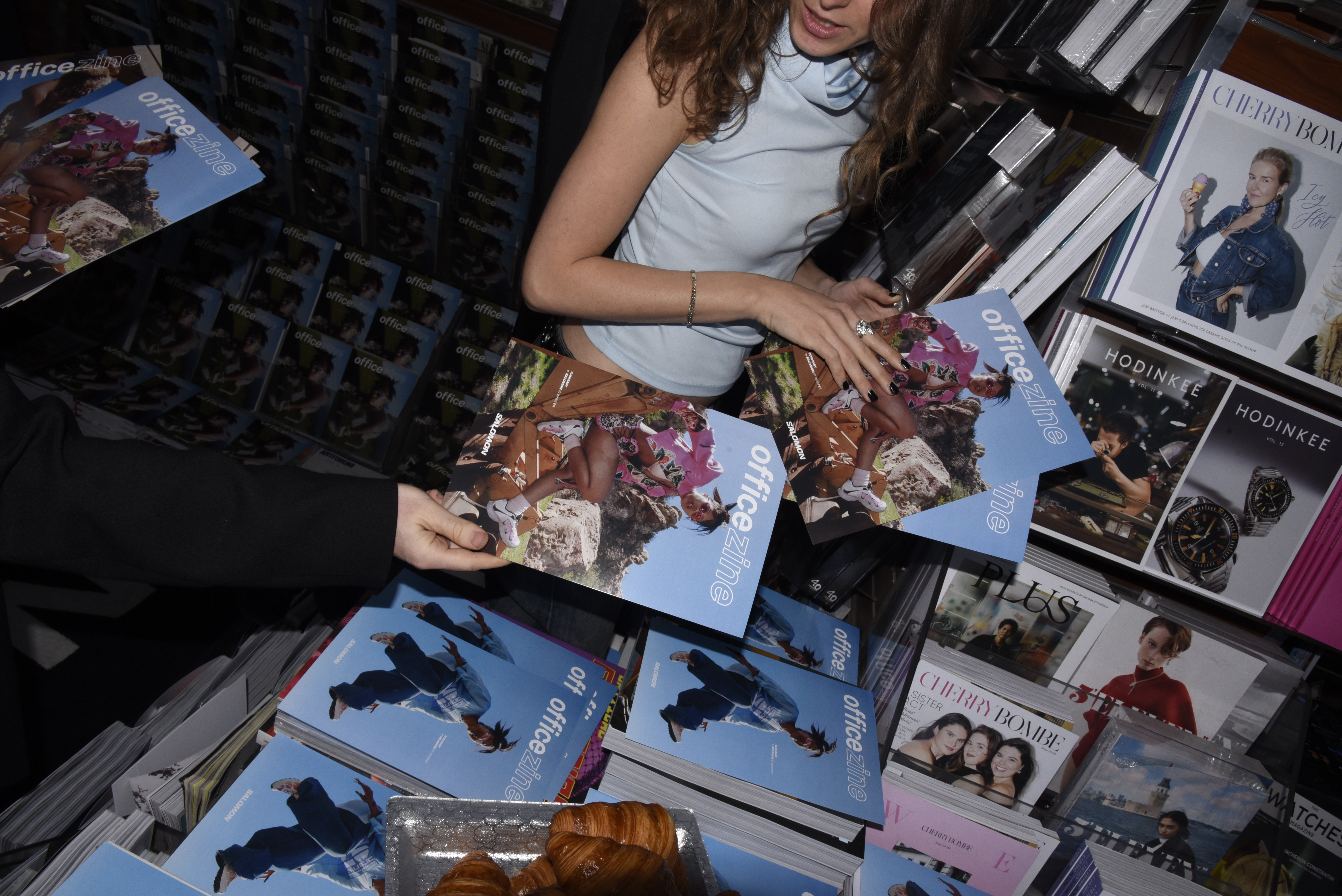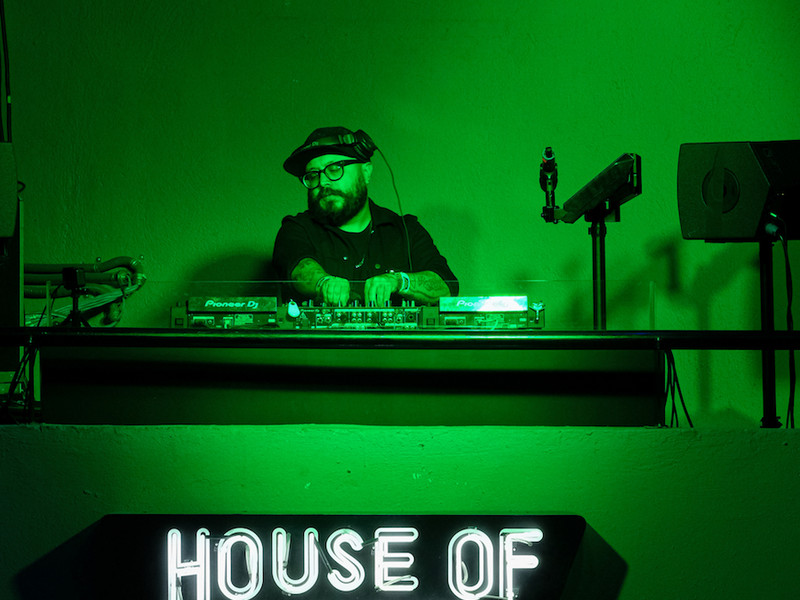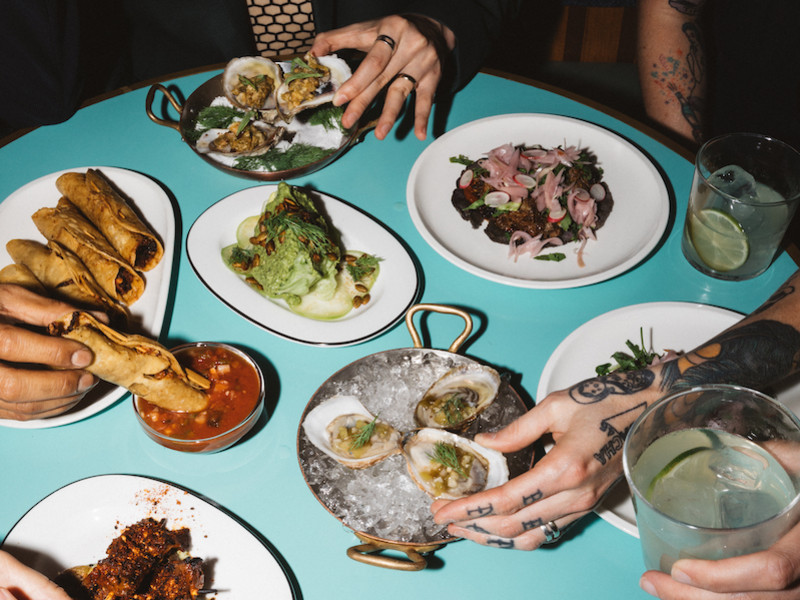I Got Bourbon Faced On Sh*t Street

To catch a glimpse of the man behind the glitzy suit, read the interview below.
Obviously, the issue of ethics is a hard one to circumvent. It's not difficult to see how the very methodology of the project — broadcasting the personal confessions of intoxicated partiers for the amusement of others — beckons themes such as exploitation and manipulation to the forefront of our consciousness. For Callaghan and director and cameraman Michael Moises, however, the naysayers of QC couldn't be farther off-base.
As a dedicated student of journalism and the author of "All Gas No Brakes: a hitchhikers diary," a zine capturing the tales of the fringe characters he encountered during an impromptu cross-country road trip, Callaghan certainly doesn’t prowl the French Quarter until 4 am for the clout, he does it because he wants to. “It’s an honor to be able to document this frenzy of sex, liquor, garbage, and drugs,” says Andrew, and thank God he does, because, from the flagrant to the downright freaky, this shit is too good to miss. In Vinum Verita isn’t an ancient Latin proverb for nothing...

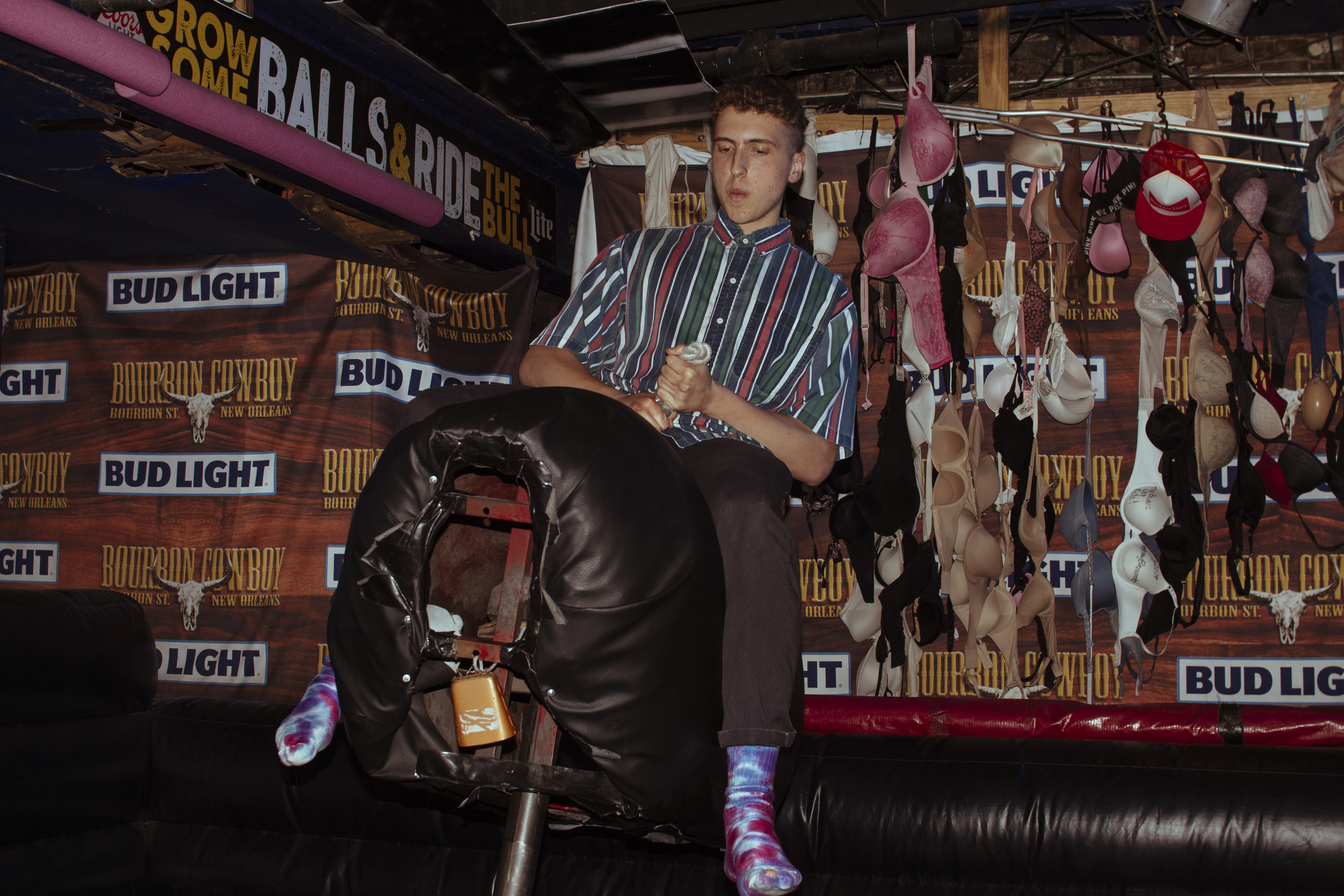
Let’s start with the basics.
I’m Andrew Callaghan and I’m from Seattle and Philadelphia, but I live in New Orleans. I’m 21 years old and I’m about to graduate from Loyola University with a degree in journalism. I’m the author of “All Gas No Breaks” and “Hitchhiker’s Diary,” and the anchor and co-producer of Quarter Confessions.
Nice, what compelled you to start Quarter Confessions?
Well I had worked on Bourbon Street as a host and a doorman. I was kind of in that depressing service industry grind, working with people who had been waiters for twenty-thirty years who just saw no exit strategy. I was surrounded by this depressing sort of tourist culture, and I would see all these hellish scenes walking around. People laying in their own vomit, people fighting, all sorts of crazy things, and I wanted to figure out how to document them in this smart, funny way. One day I just decided to quit my job at the restaurant and have fun out here, and it’s an honor to be able to document this frenzy of sex, liquor, garbage, and drugs.
How would you explain what you’re doing from a sociological standpoint?
I would say that it’s a study of humanity at its most primal. This is kind of corny phrasing but I always thought of Bourbon Street as the last frontier of anarchy in the western world — it’s this backward city of corrupt institutions, just a completely destroyed civilization. People come here from all across the world and they get possessed by this spirit. As soon as they wander into the French Quarter they just lose their inhibitions, and you’re truly able to see what humans are like in their raw form, without the polishing of their mainstream lives. I think a lot of these people work their asses off all year at an insurance firm or something and get only like two weekends off, so they come to New Orleans and nearly drink themselves to death and release all the stress pent up inside. I think it’s a beautiful moment.
Do you think that you would be able to recreate this content anywhere else?
I think that you can keep the format and change the setting. I can imagine us having some funny content in Vegas, Cancun, Panama City Beach, or South Beach, but there is definitely something unique about New Orleans. It’s the diversity, it’s the fusion of people, but it’s also about the lack of money. The people who come to New Orleans don’t have much money to spend. Drinks here are around five bucks, even at the most expensive tourist spot, the drinks are twelve dollars. If you go to Vegas or South Beach, you’re getting taxed at the jump. I mean Vegas is like a money play — people aren’t blacked out, they are somebody so they understand how their life can be affected by the shit that I document.
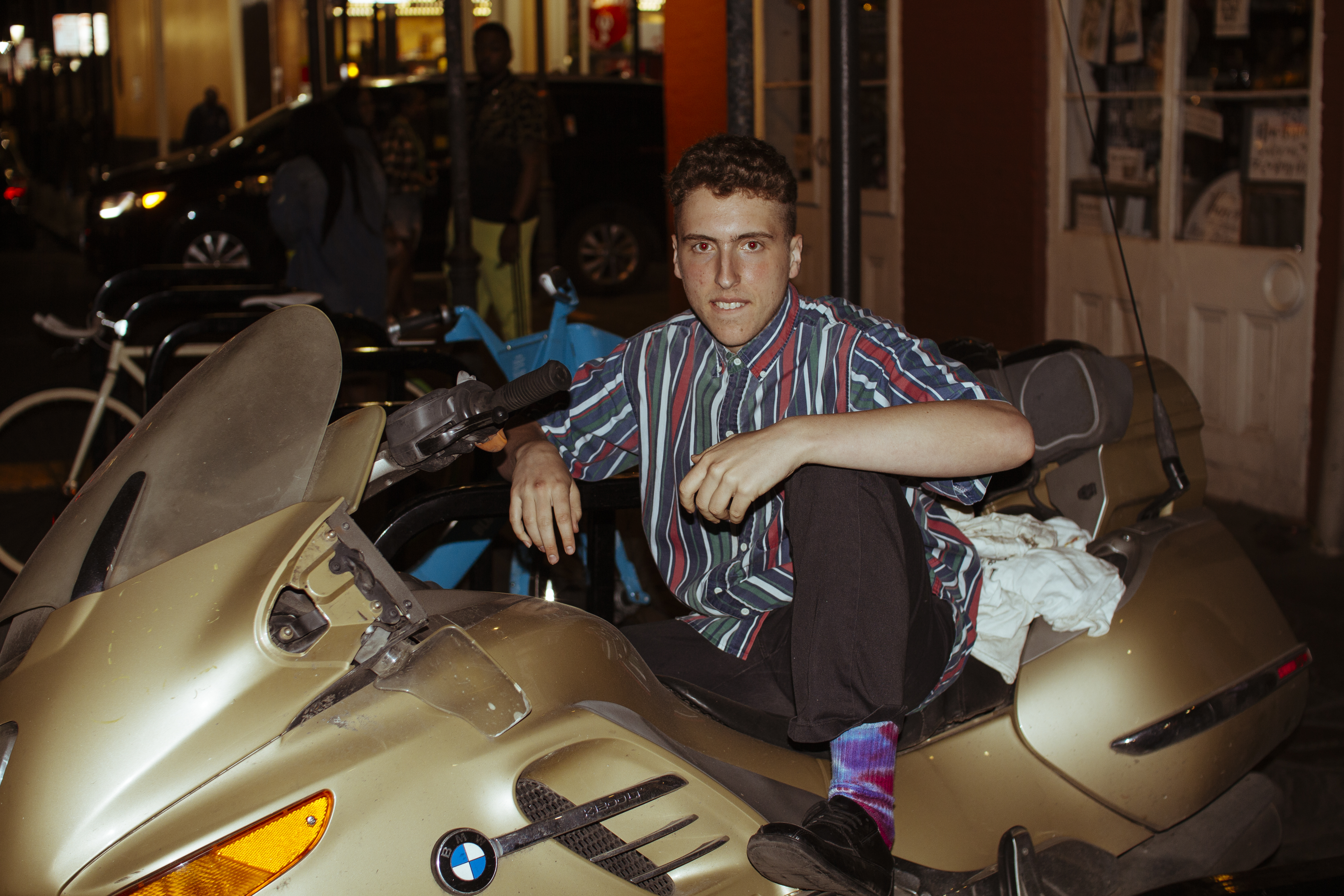
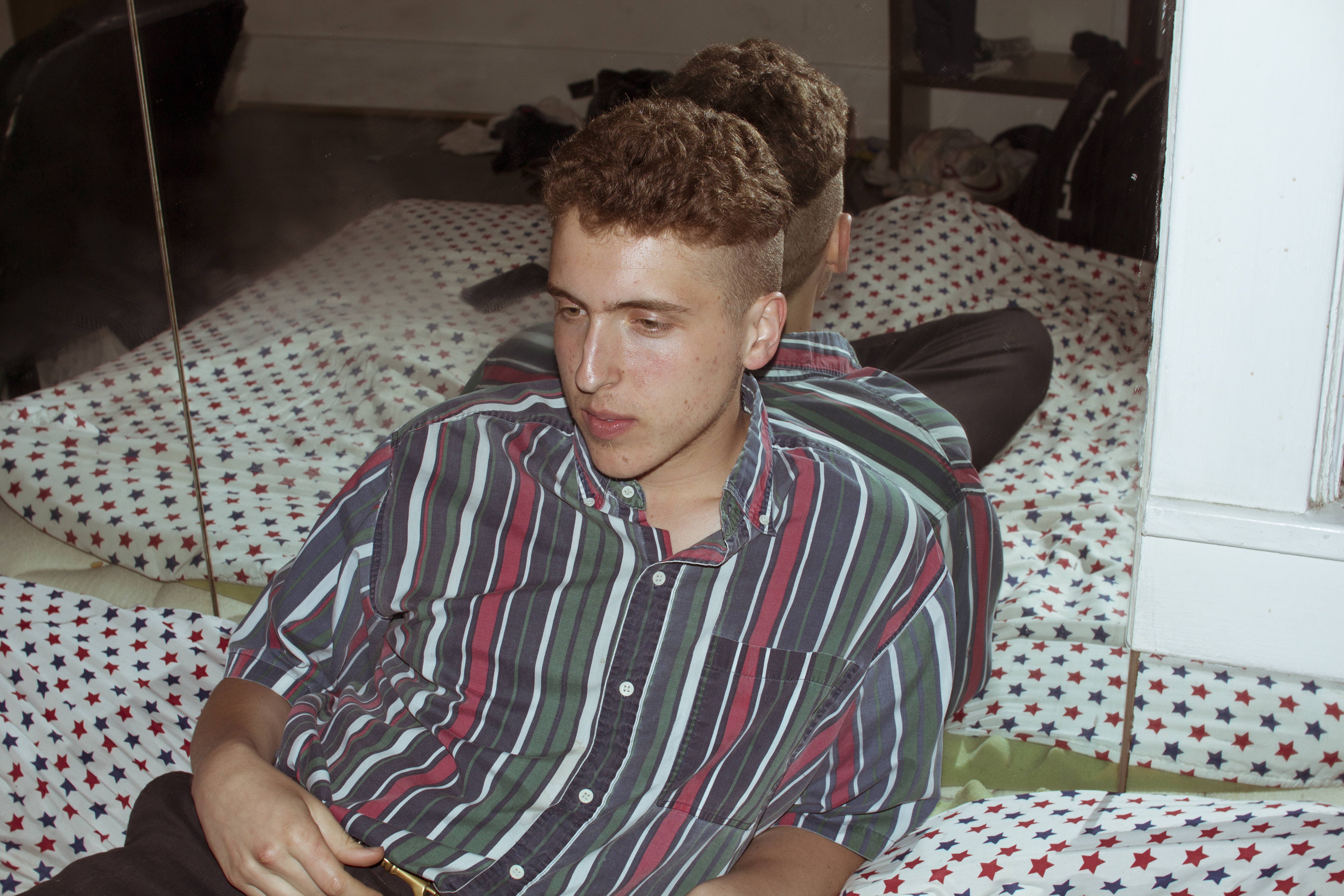
Interesting. Which fictional character do you think would be the most boring to interview?
Well, the most boring people to interview are the people who think they’re some sort of shocking, fringe outlaw character when really they’re just a normal person. So Holden Caulfield from Catcher in the Rye, someone who thinks that they’re a rebel against the system. But you can’t really shock me, I’m out here on Bourbon all day.
You’ve seen it all! Give me some backstory on your zines.
I was nineteen and I hated college, so after I took my last final I basically sprinted out of campus. I left everything in my dorm, all of my stuff — clothes, electronics — I just didn’t even think about it, I kind of spazzed out. I hitchhiked across the country for seventy days alone without any plans where to stay or how to get food, it was sick. The experience definitely changed my life. I wrote the zine two years later, actually, and I had my homie illustrate it. I didn’t go into it with the mindset, “I’m gonna document this, I’m gonna be the next Jack Kerouac road dog,” I wasn’t tryna be on that. The zine is a couple of my stories, but I wanted to take myself out of the focus, so it's mostly composed of stories that people shared with me along the way. Deadbeats, outlaws, runaways, all sorts of fringe characters who were kind enough to tell me their story and let me record it on my phone. So I transcribed those recordings, had my homie Dominic Frost illustrate, and I made a zine.
Do you think that we have certain obligations to uphold when telling the stories of others?
Yes, definitely. I’m in school for journalism right now and I think it’s important to let people tell their own story, to remove yourself from it even if you disagree with what they’re saying. I made the decision to focus on other people because I really don’t think the world needs another On the Road, Into the Wild white boy-ass train-hopping book. Who wants to read that? I don’t want to read that! I don’t think anybody wants to read that! I dig that!
As a student of journalism, is there a something you were taught about the subject within an academic setting that you have respectfully unlearned out in the streets?
Well, in journalism school they teach you the conventional route. They want you to write for the school newspaper, to be this no-opinion arbiter of information, someone who just collects information like a White House correspondent and sends it out into the world, unfiltered. They teach you that you start at a tv station or a local newspaper and work your way up so that maybe, when you’re 35 or 40, you land at the New York Times or as a White House correspondent if you’re lucky. Me doing Quarter Confessions is the new media, and the media landscape is totally different from what I expected. The videos, for example, get more exposure than the New Orleans one-stop newspaper, we get more exposure than the top story of the day. I’m realizing that you don’t need a sponsor, you can take complete control of your own media. I did a lot of formal journalistic work before this, I’ve covered very serious subjects like prison reform, gentrification, Katrina Recovery, stuff like that. And while I felt like these were rewarding experiences, I also felt like with serious straightforward journalistic reporting, there is always this undercurrent of boredom. I like video, I like bare news, I like things that don’t necessarily follow the conventions of journalistic integrity. I like to make my own content, I think it’s more rewarding and I think that people like it more because I don’t follow someone else’s program.
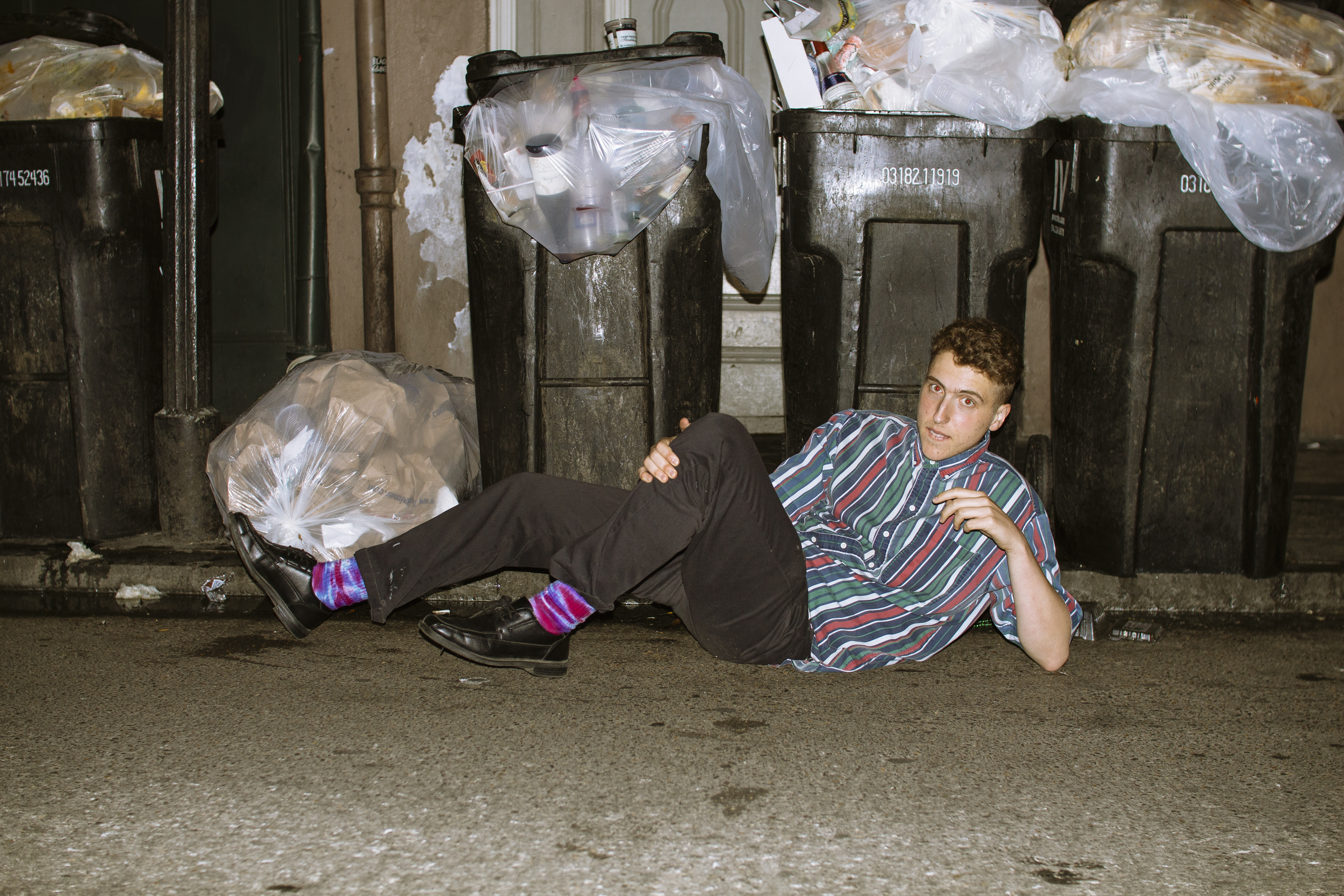
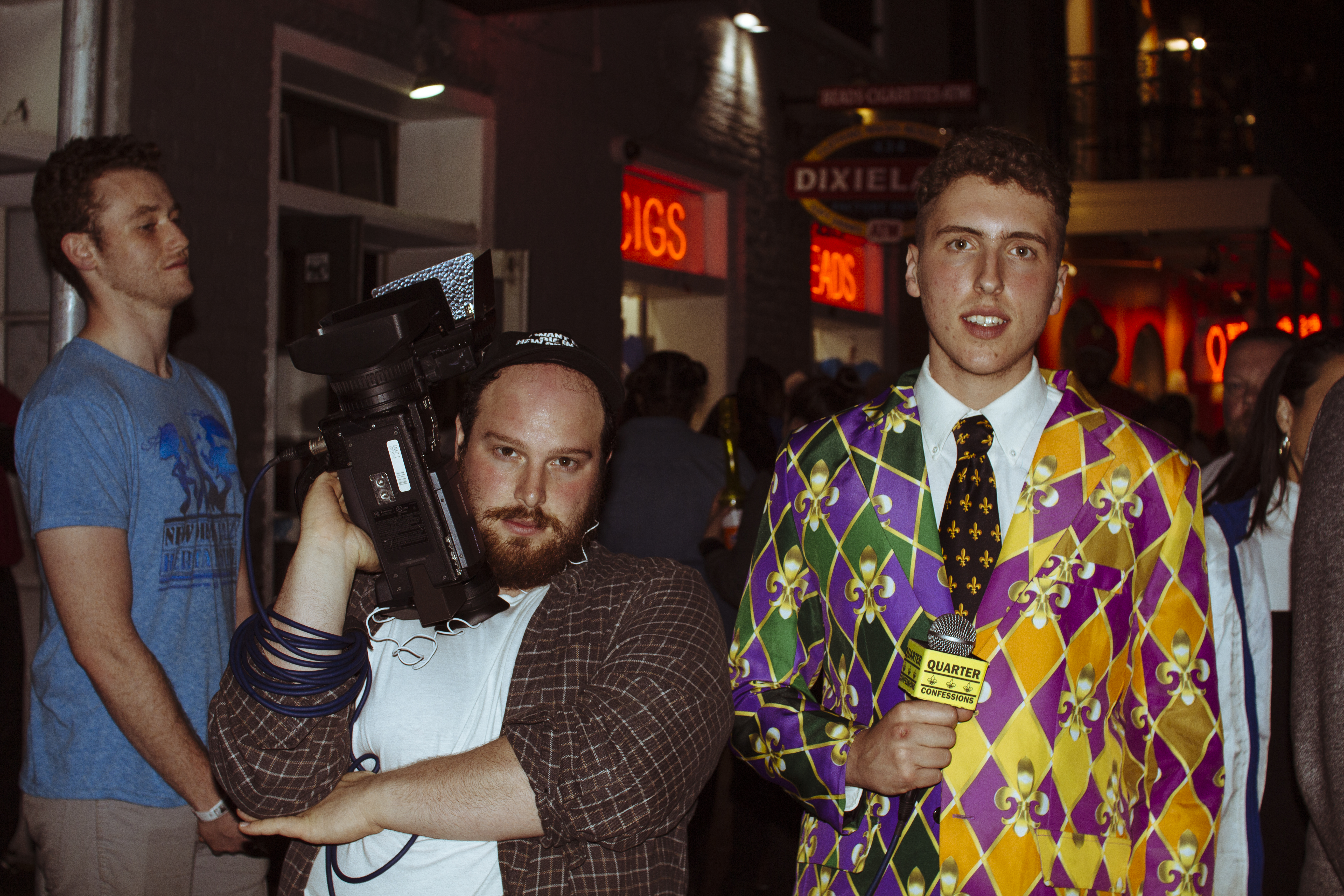
Have you ever had to cut any of your content because it was too out there?
Oh yeah, I’ll tell you a few things we’ve had to cut. We had to cut this girl because she dropped her name, her college, and her sorority, then pointed to a dude saying, “I’m cheating on my boyfriend,” then flashed the camera and said, “Fuck my boyfriend,” and drops him by name. I put it online for like half and hour and then she had lawyers on us so we took it down.
Oh shit! Do you have a legal team?
No. Someone once confessed to having a sexual relationship with their dog.
Like, an ongoing sexual relationship?
Very ongoing. We had a dude confess to shooting a man to death for trying to molest his sister. We had a dude confess to stabbing a guy in a prison fight and paying off guards to get out of it, and he said what prison it was at. Just certain things that we have no reason to include.
Do you ever feel affected by the darker undercurrents of the content?
No, I guess because even before I was making this show, like when I was kickin’ it or working on Bourbon, I was always around it. I’m pretty desensitized to everything to the point where it kind of surprises me that other people are shocked by it. I’m in the streets all day, so when people go, “What!” it reminds me of how normal everywhere else is.
That makes sense. That guy who kept sleeping with his cousin kinda did it for me. What’s something invisible about QC that you wish everyone else was able to see?
So a lot of people accuse us of coercion, of taking advantage of drunk people. We actually don’t put anyone who is visibly blacked out or stumbling on the show, we don’t encourage anybody to flash the camera, we don’t want any Girl’s Gone Wild shit. I wish people could see how down the people on the show are to be on the show. That’s one thing I wish the viewer could see, how enthusiastic they are. A lot of them are fans of the show and they want to be on for a reason. The people who try to come after me claiming I’m exploitative, it is what it is, it’s not true. Mike and I are both empathetic and reasonable and we both have a good moral compass. It’s pretty obvious when something isn’t cool to put up. To me, that’s not funny. I mean it would be shocking and it would go viral, but you don’t achieve longevity by making viral stuff, you have to build an audience.
Where do you see Quarter Confessions going? I have no idea. We started four months ago and it’s grown so fast, I don’t know what to do next. I kind of want to change the platform a little bit, maybe do more stuff on Youtube because they don’t censor as hard as Instagram does. I also want to do storylines and monologues and have recurring characters, to make it more of a satirical party show. A party reality TV show in which the people involved don’t know that it’s satirical and think it’s just a regular party show like I’m Shmacked or one of those frat boy shows, but we’re really just making fun of people who are partying hard.
Who or what were your biggest sources of influence, or your biggest reference points?
When I was a kid, I was always into underground 90s DVD’s — stuff that you couldn’t watch on TV. Old Jackass videos, Indecline, Bumfights, War4, all those old Handycam skateboarding and graffiti documentaries that you had to order on DVD. That’s why we use the old camera and go for that vintage aesthetic, because, you know, cool kids love vintage aesthetics.
Naturally. Is there anything else you want to say before we wrap it up?
I just want to say that nothing would be possible without Mike, the director. I’ve got to give him some credit, he’s the most down — he’s been down since day one. We’re out there shooting, just me and him, on Bourbon at three in the morning on a Friday night so we have to hold it down. He’s a real one, and he’s as dedicated to this project as I am, it’s just people don’t see him as much because he’s behind the camera, but he’s out here.
He’s the unsung hero of Quarter Confessions.
Exactly, he never gets enough credit.
Peep the exclusive office x Quarter Confessions video shot by Edward Buckles below.
